A Call to Preserve the Independence of the Judiciary
Article III Coalition
Constitution Day Letter
Open Letter Signed by Former Judges

Since 1787 our Constitution has stood firm. Now so must we all.On this day in 1787, our founders put aside their differences and signed the Constitution. As former federal judges, we each took an oath to support and defend the Constitution.
We come from different corners of America and have been appointed by presidents of both parties, but our commitment to our oath and the Constitution knows neither party nor retirement date. We are now compelled to speak out, as sitting judges cannot, because the Constitution is under attack. Sitting judges, bound by a code of ethics, can only speak sparingly through their opinions. We are no longer so constrained.
The founders of our nation, having defeated the most powerful monarchy of the day, blazed a new trail in establishing our constitutional republic of three separate and coequal branches of government. Our founders recognized that an independent judiciary, free from political pressure, was essential to protecting Americans’ newly won liberty. As Alexander Hamilton wrote, “there is no liberty, if the power of judging be not separated from the legislative and executive powers.” Put plainly, a judicial branch cowed by the political branches cannot safeguard the rights of all citizens.
Misinformation, disinformation, and fiery rhetoric distort public understanding of the judiciary’s critical role in maintaining our democracy. Threats against judges and their families are obvious attempts to intimidate, harass, and pressure judges and sway their opinions, shaking the public’s trust and confidence in the courts.
This Constitution Day, we pledge to strengthen America’s democracy by mobilizing a better-informed citizenry.
We are speaking out to protect the Constitution and all that it stands for. Its principles should be celebrated as the foundation of our nation. We call upon every American to join us in upholding judicial independence for our own and future generations as our founders envisioned and the Constitution guarantees.
Keep Our Republic’s Article III Coalition:
Judge Wayne R. Andersen – Formerly of the U.S. District Court for the Northern District of Illinois
Judge John W. Bissell – Formerly of the U.S. District Court for the District of New Jersey
Judge Michael Burrage – Formerly of the U.S. District Courts for the Eastern, Northern & Western Districts of Oklahoma
Judge Robert J. Cindrich – Formerly of the U.S. District Court for the Western District of Pennsylvania
Judge David H. Coar – Formerly of the U.S. District Court for the Northern District of Illinois
Judge Andre M. Davis – Formerly of the U.S. District Court for the District of Maryland & U.S. Court of Appeals for the Fourth Circuit
Judge Bernice B. Donald – Formerly of the U.S. District Court for the Western District of Tennessee & U.S. Court of Appeals for the Sixth Circuit
Judge William F. Downes – Formerly of the U.S. District Court for the District of Wyoming
Judge Allyson K. Duncan – Formerly of the U.S. Court of Appeals for the Fourth Circuit
Judge Gary E. Feess – Formerly of the U.S. District Court for the Central District of California
Judge Jeremy D. Fogel – Formerly of the U.S. District Court for the Northern District of California
Judge Royal Furgeson, Jr. – Formerly of the U.S. District Courts for the Western District of Texas & Northern District of Texas
Judge Vanessa D. Gilmore – Formerly of the U.S. District Court for the Southern District of Texas
Judge Irma E. Gonzalez – Formerly of the U.S. District Court for the Southern District of California
Judge Paul W. Grimm – Formerly of the U.S. District Court for the District of Maryland
Judge Andrew J. Guilford – Formerly of the U.S. District Court for the Central District of California
Judge Thelton Henderson – Formerly of the U.S. District Court for the Northern District of California
Judge Robert H. Henry – Formerly of the U.S. Court of Appeals for the Tenth Circuit
Judge Faith S. Hochberg – Formerly of the U.S. District Court for the District of New Jersey
Judge Richard J. Holwell – Formerly of the U.S. District Court for the Southern District of New York
Judge John E. Jones III – Formerly of the U.S. District Court for the Middle District of Pennsylvania
Judge Abdul K. Kallon – Formerly of the U.S. District Court for the Northern District of Alabama
Judge George H. King – Formerly of the U.S. District Court for the Central District of California
Judge Barbara M. Lynn – Formerly of the U.S. District Court for the Northern District of Texas
Judge Robert B. Kugler – Formerly of the U.S. District Court for the District of New Jersey & U.S. Foreign Intelligence Surveillance Court
Judge Beverly B. Martin – Formerly of the U.S. District Court for the Northern District of Georgia & U.S. Court of Appeals for the Eleventh Circuit
Judge John S. Martin – Formerly of the U.S. District Court for the Southern District of New York
Judge A. Howard Matz – Formerly of the U.S. District Court for the Central District of California
Judge Paul R. Michel – Formerly of the U.S. Court of Appeals for the Federal Circuit
Judge Carlos R. Moreno – Formerly of the U.S. District Court for the Central District of California
Judge Margaret M. Morrow – Formerly of the U.S. District Court for the Central District of California
Judge Liam O’Grady – Formerly of the U.S. District Court for the Eastern District of Virginia & U.S. Foreign Intelligence Surveillance Court
Judge Kathleen M. O’Malley – Formerly of the U.S. District Court for the Northern District of Ohio & U.S. Court of Appeals for the Federal Circuit
Judge Layn R. Phillips – Formerly of the U.S. District Court for the Western District of Oklahoma
Judge Philip M. Pro – Formerly of the U.S. District Court for the District of Nevada
Judge Victoria A. Roberts – Formerly of the U.S. District Court for the Eastern District of Michigan
Judge Shira A. Scheindlin – Formerly of the U.S. District Court for the Southern District of New York
Judge Deanell R. Tacha – Formerly of the U.S. Court of Appeals for the Tenth Circuit
Judge David S. Tatel – Formerly of the U.S. Court of Appeals for the D.C. Circuit
Judge John Daniel Tinder – Formerly of the U.S. District Court for the Southern District of Indiana & U.S. Court of Appeals for the Seventh Circuit
Judge Ursula M. Ungaro – Formerly of the U.S. District Court for the Southern District of Florida
Judge T. John Ward – Formerly of the U.S. District Court for the Eastern District of Texas
Judge Paul J. Watford – Formerly of the U.S. Court of Appeals for the Ninth Circuit
Judge Alexander Williams, Jr. – Formerly of the U.S. District Court for the District of Maryland
Judge Diane P. Wood – Formerly of the U.S. Court of Appeals for the Seventh Circuit
Judge Lee Yeakel – Formerly of the U.S. District Court for the Western District of Texas
<
>
Article III Coalition
Keep Our Republic’s Article Three Coalition is comprised of retired federal judges appointed by Presidents Carter, Reagan, George H.W. Bush, Clinton, George W. Bush and Obama. The Coalition’s judges are dedicated to American democracy, the rule of law, and the separation of powers between three co-equal branches of government. The Coalition’s expertise, impartiality, and neutrality will strengthen America’s democracy by invigorating an informed citizenry through education on the Constitution and its norms, the rule of law, the role of the judiciary and its independence, and the importance of the separation of powers.

“The judiciary must be a check on the passions of the people and the power of the legislature.”
Ben Franklin
“There is no liberty, if the power of judging be not separated from the legislative and executive powers.”
Alexander Hamilton, Federalist Paper 78.
“The very basis of our individual rights and freedoms is the certainty that the President and the Executive Branch of Government will support and [e]nsure the carrying out of the decisions of the Federal Courts…[u]nless the President did so, anarchy would result.”
President Eisenhower
(in regard to enforcing Brown v. Board, despite his personal opinion)
“Liberty can have nothing to fear from the judiciary alone, but would have every thing to fear from its union with either of the other departments.”
Alexander Hamilton, Federalist Paper 78
“I believe the American people will reject the politicization of our judiciary. When the people begin to hear the truth, they will demand an independent judiciary, free from high pressure politics and founded on the principle of judicial restraint.”
President Ronald Reagan
“The framers of the Constitution were so clear in the federalist papers and elsewhere that they felt an independent judiciary was critical to the success of the nation.”
Justice Sandra Day O’Connor
Former Federal Judges
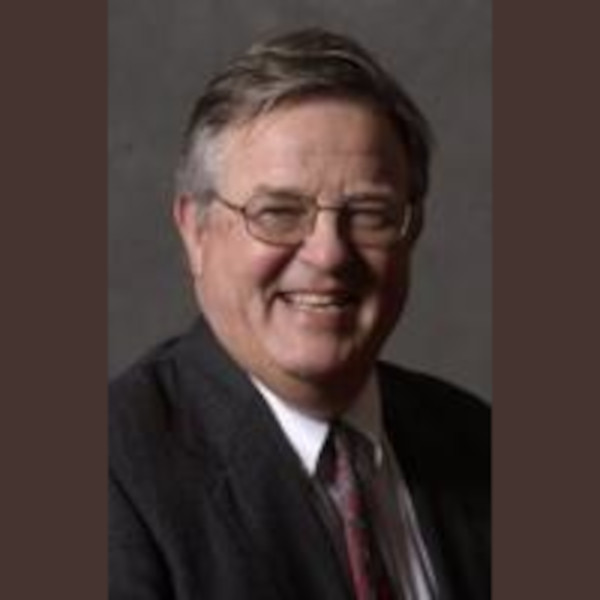
Judge John Winslow Bissell (ret.) was appointed by President Reagan in 1982 to the United States District Court for the District of New Jersey, where he served through 2005. From 2001 to 2005, he was Chief Judge of that Court.
Born in Exeter, New Hampshire, Judge Bissell earned his B.A. from Princeton in 1962, followed by an L.L.B. from the University of Virginia School of Law in 1965. After clerking with New Jersey U.S. District Court Judge Arthur S. Lane, he joined Pitney, Hardin and Kipp in Newark (1966 to 1969) before becoming an Assistant United States Attorney for the District of New Jersey (1969 to 1971). Thereafter, he returned to private practice until he was appointed in 1978 by Governor Brendan Byrne to the Essex County District Court, beginning his twenty-seven year jurist career.
Subsequent to his retirement from the U.S. District Court, he joined Connell Foley LLP in Roseland, New Jersey as Counsel, where he served both as Chair of the firm’s Alternative Dispute Resolution Department and as a member of the Business Litigation practice groups until his retirement in 2014. Judge Bissell served as Chair of the Board of Directors of the National Association of Sports Officials and is the recipient of numerous awards including the 2005 John F. Gerry Memorial Award from the Camden County Bar Association, the 2005 Association of the Federal Bar of the District of New Jersey William J. Brennan, Jr. Award, and a Lifetime Achievement Award from the Seton Hall University School of Law Public Interest Network.
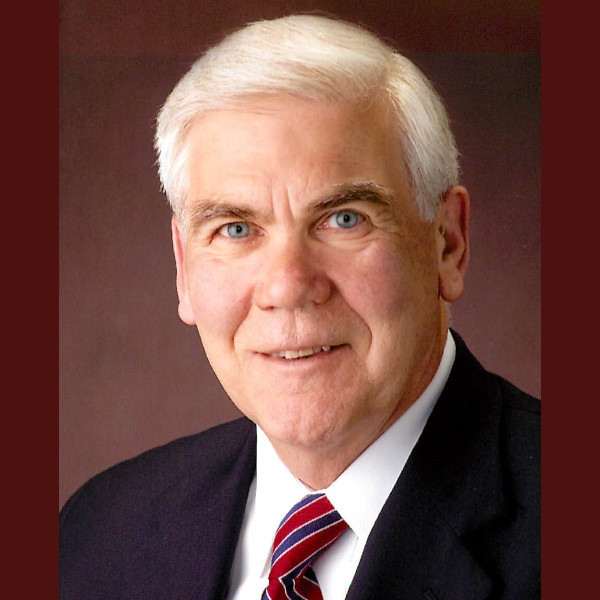
Robert J. Cindrich was appointed by President Bill Clinton and unanimously confirmed by the Senate to serve as District Judge for the United States District Court for the Western District of Pennsylvania. In 2000, President Clinton nominated him to the U.S. Court of Appeals for the Third Circuit, but the Senate did not act on the nomination.
Before becoming a district judge, Cindrich served as an assistant public defender and assistant district attorney in Allegheny County, Pennsylvania. From 1978 to 1981, he served as the U.S. Attorney for the Western District of Pennsylvania, after which he entered private practice until his judicial appointment.
Cindrich earned his A.B. from Wittenberg University in 1965 and his J.D., magna cum laude, from the University of Pittsburgh School of Law in 1968, while serving in the Army Reserve. Following law school, he clerked for Judge Ruggero J. Aldisert of the U.S. Court of Appeals for the Third Circuit from 1968 to 1969.
Cindrich has also held positions on various boards, including Mylan’s board of directors and the Heinz History Center. For his contributions to law and public service, Cindrich received the University of Pittsburgh Legacy Laureate Award.
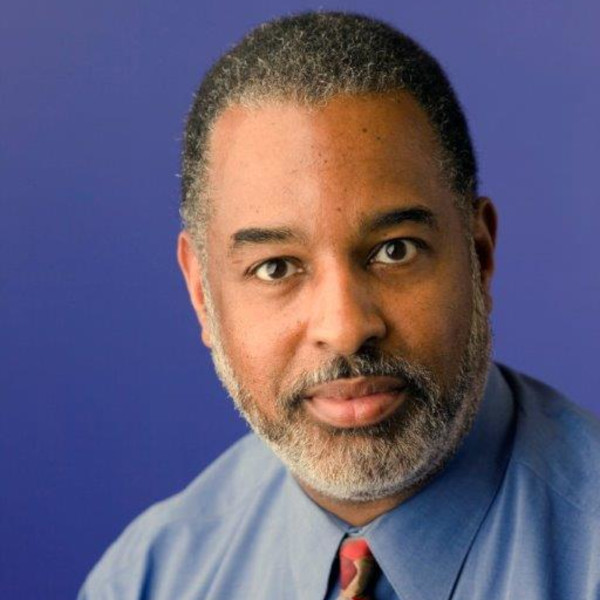
Davis received his B.A. in American History from the University of Pennsylvania and his J.D., with honors, from the University of Maryland School of Law, where he won Best Advocate in the Myerowitz Moot Court Competition, and chaired the Honor Board. The faculty awarded him the prestigious Roger Howell Award at graduation.
Upon graduation from law school, he completed one-year clerkships with Judge Frank A. Kaufman on the U.S. District Court in Baltimore and Judge Francis D. Murnaghan, Jr., on the United States Court of Appeals for the Fourth Circuit. Thereafter, he served as an appellate attorney for the Civil Rights Division of the U.S. Department of Justice in Washington and as an Assistant United States Attorney for the District of Maryland, where he handled both civil and criminal cases. He later was in private practice and, from 1984 until 1987, he was an Assistant Professor of Law at the University of Maryland School of Law, where he continued to teach as an adjunct faculty member until 2014. He has served for many years as a member of the law school’s Board of Visitors and previously on its Alumni Association Board, including a term as president. Since 1994, he has been a member of the volunteer faculty of the National Judicial College in Reno, Nevada, where he also served as a member of, and for a one-year term, chair of the faculty council. He is a frequent lecturer on aspects of civil and criminal practice for legal and judicial education and training entities.
Upon his appointment by the governor, Davis served as an Associate Judge on the District Court of Maryland for Baltimore City from 1987 through 1990 and then as an Associate Judge on the Circuit Court for Baltimore City from 1990 until his appointment in August 1995 to the U.S. District Court for the District of Maryland by President Bill Clinton. He was nominated in March 2009 by President Obama to the Court of Appeals for the Fourth Circuit and the Senate confirmed his nomination in November 2009. After assuming senior status in February 2014, he continued to carry a full load of cases on the Fourth Circuit while also sitting as a visiting circuit judge with the United States Court of Appeals for the Ninth Circuit and the United States Court of Appeals for the Sixth Circuit.
He is a past president of the Executive Committee of the Maryland Judicial Conference and a former member of the board of directors of the Judicial Institute of Maryland. He was, for many years, a member of the Section Council on Correctional Reform of the Maryland State Bar Association. He has served as the Chair of the Conference of Federal Trial Judges (Judicial Division of the ABA) and for four years as a member of the Executive Committee of the ABA’s Conference of Appellate Judges. He was for four years Chair of the ABA’s Standing Committee on Diversity in the Judiciary. He has served in numerous civic and professional leadership roles, including a two-year term as President of Big Brothers/Big Sisters of Central Maryland and a two-year term as President of the Legal Aid Bureau, Inc. For more than twenty years he has been a member of the advisory board of the Open Society Institute-Baltimore. He served for more than ten years as chair and member of the board of Community Law and Action, Inc., a law-related high school leadership development program, and as chair of the board of the Baltimore Urban Debate League, Inc.
During his 30-year judicial career through 2017, Davis was active in numerous national and international judicial and legal education and Rule of Law training programs through his membership on the Judicial Conference of the United States/Committee on International Judicial Relations; the Einstein Institute for Science, Health and the Courts; the MacArthur Foundation Research Network on Law and Neuroscience; and the Federal Judicial Center. He has participated and presented in many programs, trainings, and seminars, including, among others, workshops and seminars in Russia, Armenia, Poland, Ukraine, Kosovo, Swaziland, Nigeria, Uganda, South Africa, Tanzania, Mali, and Egypt. His keen interest in how advances in technology improve the work of courts prompted his six-year tenure on the Committee on Information Technology of the Judicial Conference of the United States.
Davis has been the recipient of numerous awards and commendations, including the Benjamin Cardin Public Service Award and the Mary Ellen Barbera Judicial Excellence Award, each granted by the University of Maryland Francis King Carey School of Law, the 2017 John Marshall Award, presented by the American Bar Association, and the Joseph Curran Public Service Award, given by the Maryland Bar Foundation.
In September 2017, at the invitation of a newly elected mayor of his beloved hometown of Baltimore, Maryland, Davis retired fully from service as a judge to join Mayor Pugh’s administration as City Solicitor, Head of the Law Department, and one of five voting members of the City Spending Authority, the Board of Estimates. As Solicitor, Davis managed a department of approximately 110, including 70 lawyers who represent the City in all civil legal matters, including but not limited to affirmative and defensive litigation, tax matters, real estate, and contracts of all kinds. In his role as counsel to the Baltimore City Police Department, he was at the forefront of the City’s implementation of the federal court consent decree jointly agreed to by the U.S. Department of Justice and Baltimore City following the widespread unrest and consequent Justice Department investigation of police practices in April 2015.
He retired as City Solicitor in February 2020. In retirement, he has continued his efforts to advance the cause equal justice and community uplift through service, among other commitments, as Vice Chair of the Attorney General’s Access to Justice Task Force, a Trustee of the Walters Art Museum, membership on the advisory board of the Center for Law, Behavior, and the Brain headquartered at Harvard Medical School, membership on the board of the Juvenile Law Center, headquartered in Philadelphia, and membership on the advisory board of Roca-Baltimore, a nationally renowned community violence prevention program. He keeps an office at the University of Maryland Francis King Carey School of Law, where he has been named a Distinguished Jurist in Residence.
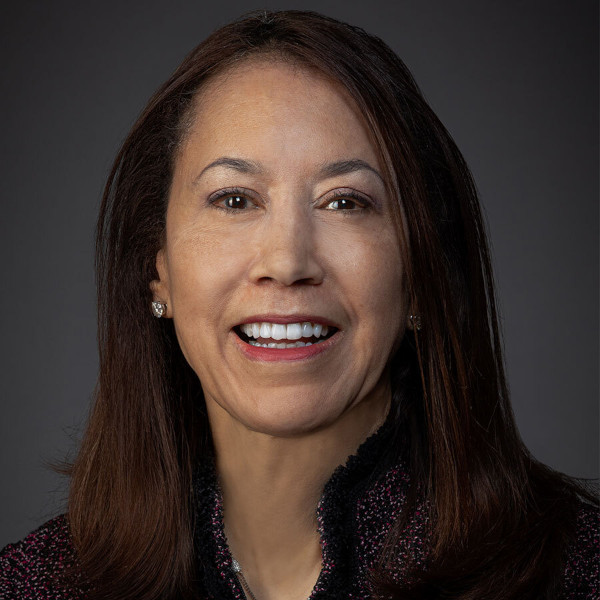
The honorable Allyson K. Duncan spent fifteen years on the United States Court of Appeals for the Fourth Circuit from 2003 to 2019. She was nominated to the federal judiciary by President George W. Bush and confirmed by a unanimous vote in the U.S. Senate.
Prior to the bench, she clerked for Judge Julia Cooper Mack on the District of Columbia Court of Appeals before joining the U.S. Equal Employment Opportunity Commission as an appellate attorney, eventually rising to agency counsel. She later taught law as an associate professor at North Carolina Central University (NCCU) and served as a judge on the North Carolina Court of Appeals, and as a commissioner on the North Carolina Utilities Commission before joining Kilpatrick, Townsend and Stockton in Raleigh as a partner.
Hailing from Durham, North Carolina, Judge Duncan graduated first in her class at Hampton University in 1972 and went on to receive her law degree from Duke University in 1975. Her numerous accomplishments include becoming the first African-American woman to serve as a judge on the North Carolina Court of Appeals, the first African-American president of the North Carolina Bar Association, and the first African-American woman to sit on the Fourth Circuit.
Judge Duncan is a past president of the Federal Judges Association (FJA), the organization representing Article III United States judges. Additionally, Chief Justice John Roberts appointed her to chair the International Judicial Relations Committee, which coordinates and responds to requests for judicial assistance in other countries. She is a member of the American Law Institute (ALI) and serves as the president of the North American/Asian Group of the International Association of Judges.
Since leaving the bench, Judge Duncan has worked as a court-appointed neutral, mediator, and arbitrator with JAMS Dispute Resolution Service.
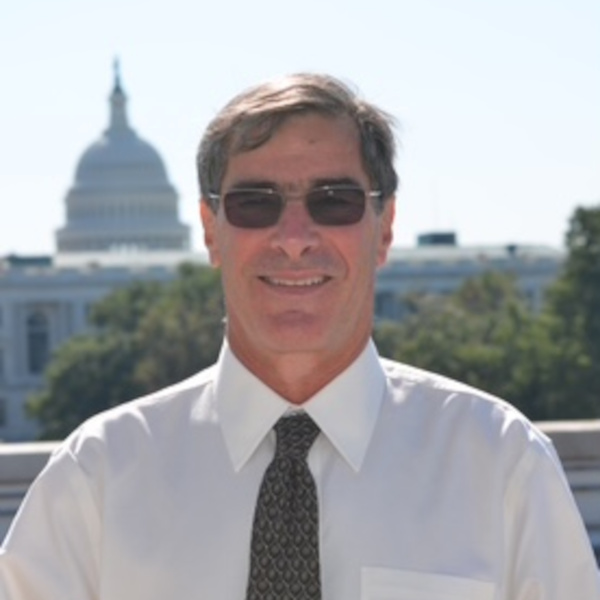
Jeremy Fogel is the first Executive Director of the Berkeley Judicial Institute, a center at Berkeley Law School whose mission is to build bridges between judges and academics and to promote an ethical, resilient and independent judiciary. Prior to his appointment at Berkeley, he served as Director of the Federal Judicial Center in Washington, DC (2011-2018), as a United States District Judge for the Northern District of California (1998-2011), and as a judge of the Santa Clara County Superior (1986-1998) and Municipal (1981-1986) Courts. He was the founding Directing Attorney of the Mental Health Advocacy Project from 1978 to 1981 and was a national leader in promoting access to justice for people with chronic mental health issues.
Judge Fogel has taught for the Federal Judicial Center since 2002 and was a lecturer at Stanford Law School, where he taught a course on the psychology of litigation, from 2003 until his relocation to Washington in 2011. He taught for the California Continuing Judicial Studies Program (CJSP) and California Judicial College from 1987 to 2010 and served on CJSP’s Curriculum Planning Committee for six years, including two as chair. He has served as a faculty member for legal exchanges on ethics, case management and intellectual property in approximately twenty foreign countries. During his tenure at the Federal Judicial Center, he oversaw the development of the Center’s first comprehensive, integrated curriculum for judicial branch education.
Judge Fogel was a member of the Committee on Financial Disclosure of the Judicial Conference of the United States from 2004-2011; he chaired the subcommittee that developed the original platform and procedures for electronic filing of annual financial disclosure reports and laid the groundwork for online public access. As a California state court judge, he chaired the Judicial Ethics Committee and Judicial Discipline and Disability Committee of the California Judges Association, and he organized and led a confidential counseling program for judges facing disciplinary proceedings.
He received his B.A. from Stanford University in 1971 and his J.D. from Harvard Law School in 1974. Judge Fogel has received numerous accolades, including the Samuel E. Gates Litigation Award from the American College of Trial Lawyers for significant contributions to the litigation process, the President’s Award for Outstanding Service to the California Judiciary from the California Judges Association, and the Vanguard Award from the State Bar of California for notable contributions to intellectual property law.
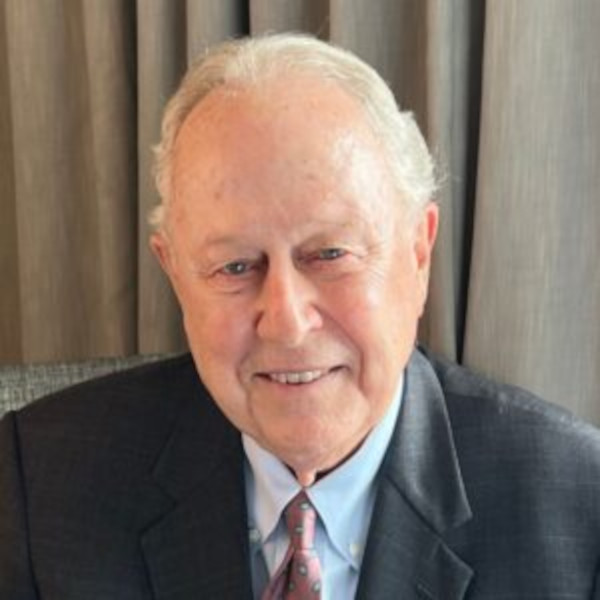
Royal Furgeson, Jr. retired as a United States District Judge in 2013 after 19 years on the bench. A graduate of Texas Tech University in 1964 and the University of Texas School of Law in 1967, he was named the founding Dean of the UNT Dallas College of Law in 2012 and assumed the position in June 2013. He retired from UNT in June 2018, after achieving ABA provisional accreditation for the law school. He now practices law with his wife Marcellene Malouf in the firm of FurgesonMalouf Law PLLC, and limits his work to mediations, arbitrations, and special master appointments.
After law school, Judge Furgeson served with the U.S. Army for two years, attaining the rank of Captain. Following a tour in Vietnam, he returned to Lubbock as law clerk to the Honorable Halbert O. Woodward.
Before taking the bench, Judge Furgeson practiced law for twenty-four years with the Kemp Smith law firm in El Paso, Texas. During that time, he became a fellow of the American College of Trial Lawyers, an elected member of the American Law Institute, president of the El Paso Chapter of the American Board of Trial Advocates, president of the El Paso Bar Association and chair of the United Way of El Paso.
During his time on the bench, he was a panel judge on the Judicial Panel on Multidistrict Litigation, president of the Federal Judges Association, and chair of the Judicial Resources Committee of the Judicial Conference of the United States.
His honors include the Distinguished Alumnus Award by the Texas Tech Alumni Association, the West Texas Legal Legend Award by the Texas Tech University School of Law, the Leon Green Award by the Texas Law Review, the Faculty Award by the University of Texas School of Law, Honorary Serjeant of the William “Mac” Taylor, Jr. American Inn of Court, the Morris Harrell Professionalism Award by the Dallas Bar Association and the Texas Center for Legal Ethics and Professionalism, and Jurist of the Year, Texas Chapter of ABOTA. In 2016, he was named one of the fifty Lions of the Texas Bar by the Texas Lawbook.
Judge Furgeson’s wife Marcellene Malouf is a graduate of St. Mary’s University School of Law and is Managing Trustee of the DII Asbestos Trust. Together, they have nine children and 14 grandchildren.

In 1994 when Judge Vanessa Diane Gilmore was sworn in, she was then the youngest sitting federal judge in the nation. The native of Silver Spring, Maryland was also the youngest member of her freshman class at her alma mater, Hampton University entering at age sixteen. Gilmore decided to undertake a career in law after she represented herself and won a minor civil lawsuit. She graduated from the University of Houston Law Center in 1981.
In 1982, Gilmore began a 13-year tenure at a Houston law firm known as Vickery, Kilbride, Gilmore and Vickery where she specialized in civil litigation. Gilmore also became an active member of the Houston civic community, serving on the boards of a number of civic and charitable organizations including a term as president of the YWCA of Houston and as a teacher and counselor in the area of election law.
Her civic activities outside of the courtroom brought her to the attention of Governor Ann Richards who in 1991 appointed Gilmore to the Texas Department of Commerce Policy Board, where she also served as chairperson from 1992 to 1994. Her appointment to that board made Judge Gilmore the first African-American to serve on this board responsible for increasing business, promoting tourism and developing job training in Texas. In 1993, she also served as chairperson of Texans for NAFTA. In this capacity, she worked regularly with diplomatic leaders, including the President of Mexico, to increase U.S. trade opportunities.
Gilmore was nominated to the federal bench by President Bill Clinton in 1994 and became the first University of Houston graduate to be appointed to the Federal bench. During her tenure as a federal judge, she has written significant opinions on patients’ rights, intellectual property, labor and employment, securities law, energy, insurance and environmental law. She presided over the trial of the Enron Broadband case, and over the environmental case relating to the building of the Galveston cruise ship terminal as well as the case that permitted Uber and Lyft to operate in Houston.
After more than 27 years of judicial service, Gilmore retired from the bench in January of 2022 and now serves of counsel to the Roberts Markland law firm and also works as a mediator and arbitrator with JAMS, an alternative dispute resolution company. She serves on the advisory board of a privately held corporation and she is also the proud owner of “Tea With Judge V”, a tearoom located in the Hotel King David on the historic Riverside Drive.
Judge Gilmore is the co- author of “A Boy Named Rocky”, a book for the children of incarcerated parents. She is a frequent speaker on issues related to these children and has worked on initiatives to help them and their families. Gilmore is the author of three other books including “Saving the Dream”, a fiction novel that Gilmore hopes will encourage other families and single people to pursue their own dreams of parenting through adoption. She is the recipient of numerous civic awards for community service. She spent seventeen years on the board of trustees of Hampton University, and currently serves on the boards of the DePelchin’s Children Center, Texas Children’s Hospital, the Houston Fund for Social Justice and Economic Equity, The Kinder Institute for Urban Research and on the board of visitors of MD Anderson. Gilmore is the mother of one son who is a graduate of American University.
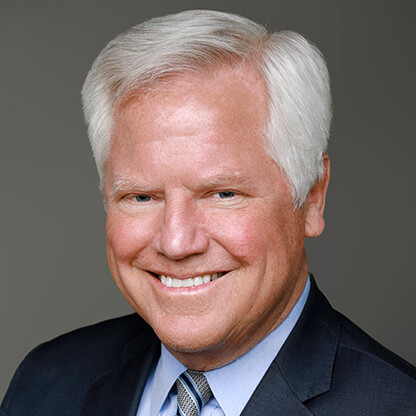
The Honorable Andrew J. Guilford, Retired, now serves as a mediator, arbitrator, and private judge. On July 7, 2006, he was sworn in as a United States District judge. On request, he has sat with appellate courts for the Federal Circuit Court of Appeals in Washington D.C. and the Ninth Circuit Courts of Appeals.
Before becoming a district judge, Andrew Guilford was a business trial lawyer with Sheppard Mullin Richter & Hampton for over 30 years, handling cases involving a wide variety of issues, particularly relating to intellectual property, finance, and professional liability.
As a Regent Scholar at UCLA, Mr. Guilford received his AB degree in economics summa cum laude in 1972, and was elected to Phi Beta Kappa. He received his JD degree from UCLA in 1975, and was an associate editor of the UCLA Law Review.
In 1992, Guilford was elected as a Fellow in the American College of Trial Lawyers. He was recognized five times by the Daily Journal as one of California’s Top 100 Attorneys, and honored by the following groups with different awards: the American Inns of Court with its Professionalism award; the University of California, Irvine as a “True Founder” of its law school; the Orange County Bar Association with its Franklin G. West Award; the Anti-Defamation League with its Jurisprudence Award; the J. Reuben Clark Society with its J. Reuben Clark Award; the Orange County Asian American Bar Association with its Judicial Excellence Award; the Hispanic Bar Association as Judge of the Year; the Orange County Federal Bar Association with its Alicemarie Stotler Award; the Orange County Intellectual Property Law Association with its Distinguished Judge Award; and the Markey Intellectual Property Inn of Court by naming its annual award after him.
Among Guilford’s professional activities include serving as the President of the State Bar of California and President of the Orange County Bar Association. At the request of the Chief Justice of the United States in 2011, he served on the Committee on Codes of Conduct of the U.S. Judicial Council.
With his strong commitment to community service, Guilford served as President of the Public Law Center, and on the State Bar Commission on Access to Justice and the Judicial Council’s Task Force on Self-Represented Litigants. He was awarded his firm’s Pro Bono Attorney of the Year Award, the State Bar President’s Pro Bono Service Award, and the Poverty Law Center Outstanding Service Award.
Guilford has written many articles on various topics concerning the justice system. His most recent articles include Andrew J. Guilford & Joel Mallord, A Step Aside: Time to Drop the Infield Fly Rule and End a Common Law Anomaly, 164 U. Pa. L. Rev. 281 (2015). He served as an Adjunct Professor at the UC Irvine School of Law. He is a Contributing Editor of The Rutter Group’s Federal Civil Procedure Before Trial.
Andy welcomes conversation about politics, history, arts, and sports. For fun, Andy takes photos, travels, reads history, follows sports, plays with his grandkids, and plays at tennis and basketball. His hero is Winston Churchill, and he hopes someday to see Maury Wills elected to baseball’s Hall of Fame.
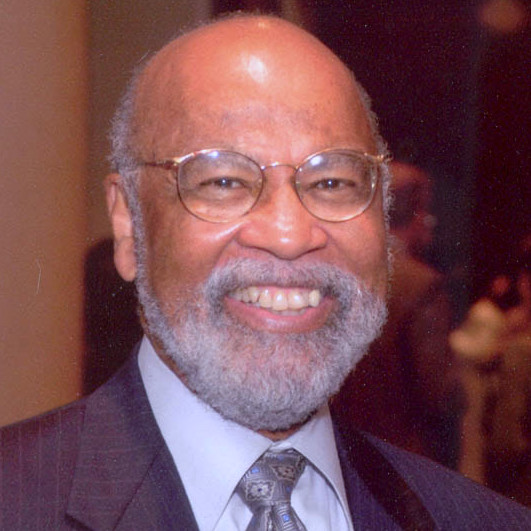
The Honorable Thelton E. Henderson was appointed to the United States District Court for the Northern District of California by President Jimmy Carter in 1979. After serving as Chief Judge of the district from 1990 to 1997, he assumed senior status in 1997 and inactive status in 2017. Among his more notable cases, Judge Henderson has overseen institutional reform of the special education system in East Palo Alto’s Ravenswood City School District; the Oakland Police Department; conditions at Pelican Bay State Prison; and the provision of medical care to incarcerated persons throughout the California prison system.
Prior to his appointment to the bench, Judge Henderson worked for the Civil Rights Division of the United States Department of Justice, as a legal aid lawyer, and in private practice. He also served as an associate professor at Golden Gate University School of Law and an assistant dean at Stanford Law School, where he developed a program to increase minority admissions. His alma mater, Berkeley Law, renamed its Center for Social Justice – now the Thelton E. Henderson Center for Social Justice – in his honor in 2006.
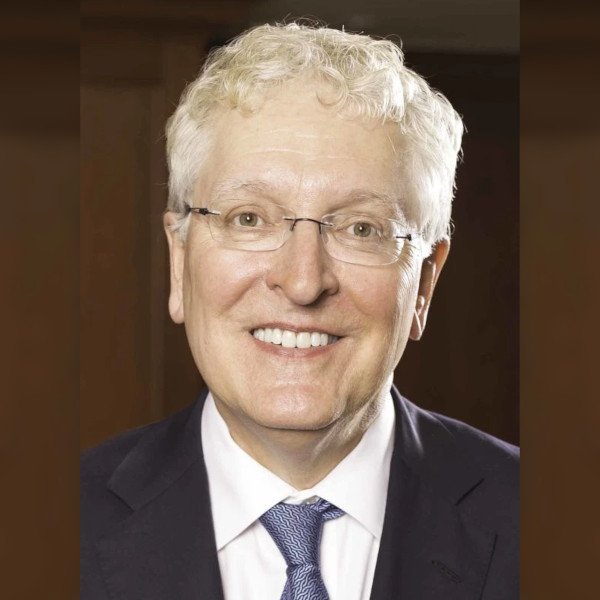
Hon. Robert Harlan Henry was appointed to the United States Court of Appeals for the Tenth Circuit in 1994 by President Clinton. Judge Henry served in that position for 16 years, the last two as Chief Judge. During his time on the Tenth Circuit, he wrote over 750 decisions. In 2010, Chief Judge Henry stepped down from the bench to become President of Oklahoma City University, a position he held until 2018. Prior to his judicial service, he was Dean and Professor of Law at Oklahoma City University School of Law where he taught legislation and statutory construction. Before his academic work he was Attorney General of Oklahoma (re-elected without opposition) and was active in the National Association of Attorneys General where he chaired the Association’s Committees on Agricultural Law and Civil Rights; he was also a member of the Association’s Supreme Court Advocacy Committee, which provided moot courts for all cases argued by Attorneys General before the Supreme Court of the United States. Before serving as Attorney General, he practiced in the law firm of Henry, West, Sill, and Combs in Shawnee, Oklahoma.
While on the bench, Judge Henry served as Chair of the Judicial Conference Committee on International Judicial Relations, and served on the Codes of Conduct Committee, both positions appointed by Chief Justice William H. Rehnquist. He is a life member of the American Law Institute, the Uniform Law Commission (National Conference of Commissioners on Uniform State Laws), and the Tenth Circuit Historical Society. In 2017, the SCRIBES American Society of Legal Writers presented Judge Henry its Lifetime-Achievement Award for legal writing. Since leaving the bench, Judge Henry has conducted moot appellate court arguments, participated in mediations, and represented Indian Nations on various matters. He also served on the board of Devon Energy.
Judge Henry’s past law related activities include several years on The Council on Foreign Relations, the Board of the Vera Institute of Justice in New York, and the Board of the Oklahoma Medical Research Foundation. Judge Henry was the United States Representative to the Foundation for the Future, based in Amman, Jordan (succeeding Justice Sandra Day O’Connor). He served on the Advisory Board, Judicial Outreach Program of the American Society of International Law. He was the inaugural chair of the American Bar Association’s Middle East and North Africa Council. He has written numerous law review articles and book chapters and has lectured at law schools around the country and abroad. Judge Henry holds four honorary doctorate degrees.
Judge Henry has received many awards over the years. He has been inducted into the Order of the Owl, which is the Hall of Fame for Oklahoma University College of Law; he received the Light, Leadership & Legacy Award from the Oklahoma Israel Exchange; he was recognized by the Oklahoma Supreme Court as “The Honored One” at the Oklahoma Sovereignty Symposium; he received a Certificate of Appreciation from the Department of State for his work in international judicial relations; he received a Certificate of Gratitude (for substantial contribution to the development of relations between American and Russian Judges) from the Council of Judges of the Russian Federation. Also, he received the Oklahoma Human Rights Award from the Oklahoma Human Rights Commission and the A. C. Hamlin Award from the National Black Caucus of State Legislators.
Judge Henry is currently Jurist-in-Residence at the University of Washington School of Law.
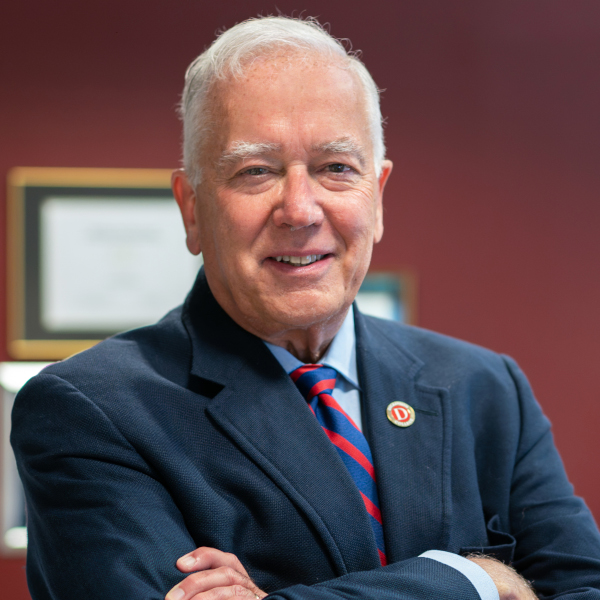
John E. Jones III was officially named Dickinson College’s 30th president on Feb. 28, 2022, after serving as interim president since the summer of 2021. Jones took the helm after retiring as chief judge of the U.S. Middle District Court of Pennsylvania. He was appointed to the federal bench by President George W. Bush and unanimously confirmed by the United States Senate on July 30, 2002.
Jones presided over a number of high-profile cases. In 2003, Jones struck down portions of Shippensburg University’s speech code on the basis that it violated the First Amendment’s free speech guarantee. In that same year, Jones ruled in a decision later affirmed by the United States Supreme Court, that the U.S. Department of Agriculture’s statute assessing milk producers in order to fund advertising, including the Milk Mustache/got milk® campaign, did not infringe the free speech rights of the producers. In 2005, Jones presided over the landmark case of Kitzmiller v. Dover School District, after which he held that it was unconstitutional to teach intelligent design within a public school science curriculum. In 2006, he ruled that the Commonwealth of Pennsylvania’s ballot access procedures for minor political parties did not violate the Constitution. In 2014, Jones resolved the matter of Whitewood v. Wolf by striking down as unconstitutional Pennsylvania’s ban on same-sex marriage.
Before becoming a federal judge, Jones was a lawyer in private practice in his hometown of Pottsville, Pa. In November 1994, then Pennsylvania Governor-elect Tom Ridge named Jones as a co-chair of his transition team. In May 1995, Ridge nominated Jones to serve as chairman of the Pennsylvania Liquor Control Board.
Jones has received numerous accolades during his career. He received the Outstanding Alumni Award from the Dickinson School of Law, as well as an honorary doctorate in law and public policy from Dickinson College, where he was recognized as one of the 25 most influential graduates in the college’s history. In 2009, the college’s faculty voted to induct Jones into its Phi Beta Kappa chapter. In 2006, Jones was named by Time magazine as one of its Time 100 most influential people in the world. He also received a Rave Award for Policy from Wired magazine and was the recipient of the first John Marshall Judicial Independence Award, given by the Pennsylvania Bar Association. In 2009, he was the recipient of the Geological Society of America’s President’s Medal, and in the same year he was inducted into the George Washington Spirit Society.
In 2013, Chief Justice John Roberts appointed Jones to the Committee on Judicial Security, a standing committee of the Judicial Conference of the United States, and in 2018 Roberts appointed Jones to the Committee on Space and Facilities.
Jones joined Dickinson College’s board of trustees in 2008 and served as chair of the board from 2017 until 2021. He is a former member of the Board of Regents of Mercersburg Academy. He has served as an adjunct professor of law at The Penn State Dickinson School of Law.
Born and raised in Schuylkill County, Pennsylvania, he is a graduate of Mercersburg Academy, Dickinson College and Penn State Dickinson Law. He and his wife, Beth, have two children, Meghan and John ’11, and three grandchildren.
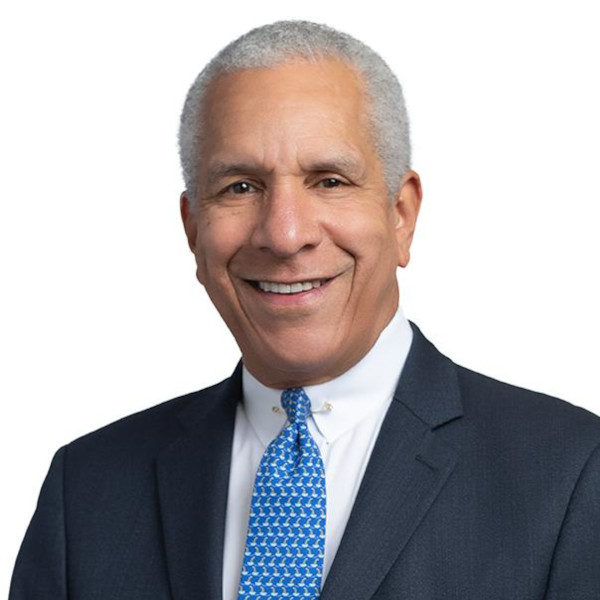
Former federal appeals judge Timothy K. Lewis serves as a mediator, arbitrator, settlement counselor, and trial and appellate practitioner
Before entering private practice, Judge Lewis served on the U.S. Court of Appeals for the Third Circuit. He was serving on the U.S. District Court for the Western District of Pennsylvania when President George H. W. Bush elevated him to the Court of Appeals in 1992. At the time of both appointments, he was the youngest federal judge in the United States. Before being appointed to the federal bench, Judge Lewis served as an Assistant U.S. Attorney for the Western District of Pennsylvania and as an Assistant District Attorney in Allegheny County, Pennsylvania.
As a federal judge, Judge Lewis tried, decided, and authored opinions in all types of matters that came before the federal courts, particularly in the areas of employment disputes, class actions, intellectual property, and commercial and corporate disputes. He has developed a national and international alternative dispute resolution (“ADR”) practice working with many of the world’s leading corporations. Additionally, Judge Lewis provides strategic counseling and conducts moot courts for various federal appellate matters in circuit courts throughout the country. Judge Lewis also handles federal and state criminal cases and corporate investigations.
Judge Lewis is a prolific thought leader and is often asked to speak at events and comment on breaking news and industry trends. He’s been quoted by media outlets such as the Associated Press, The New York Times, Reuters, NPR, MSNBC, ABC News, CBS Pittsburgh, NBC Philadelphia, Pittsburgh Public Radio (WESA), Philadelphia Inquirer, Pittsburgh Tribune-Review, Pittsburgh Post-Gazette, Voice of America News, Dispute Resolution Magazine, Bloomberg Law, and Law360 among others. He has written articles for The Brookings Institute, The New York Times, The Los Angeles Times, CNN, Politico, The Washington Post, USA Today, The Huffington Post, The National Law Journal, The Pennsylvania Lawyer, Texas Lawyer, The Legal Intelligencer, The Philadelphia Inquirer, The Morning Call, Constitution Daily, ThinkPorgress.org, For the Defense, and more.
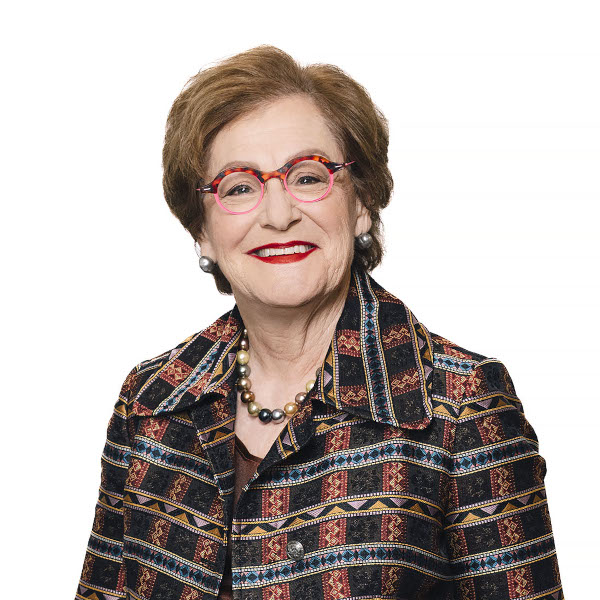
Hon. Barbara M. G. Lynn (ret.) served as a Senior United States District Judge for the Northern District of Texas. She was appointed to the federal bench by President Bill Clinton and confirmed by the Senate in 1999. In 2016, she made history as the first woman to serve as Chief Judge of the Northern District of Texas, a role she held until 2022. She assumed senior status in 2023 and retired from the bench in 2025 to join the firm as a partner.
A summa cum laude graduate of the University of Virginia, Judge Lynn earned her law degree from Southern Methodist University School of Law, where she graduated first in her class. Before her judicial appointment, she practiced at Carrington Coleman in Dallas, where she was the firm’s first female associate and later its first female partner.
Judge Lynn has long been a leader in the legal community, serving as Chair of both the ABA Section of Litigation and the ABA Judicial Division, and as President of the American Inns of Court Foundation. She is widely recognized for her integrity, her unwavering commitment to the rule of law, and her dedication to advancing women in the legal profession.
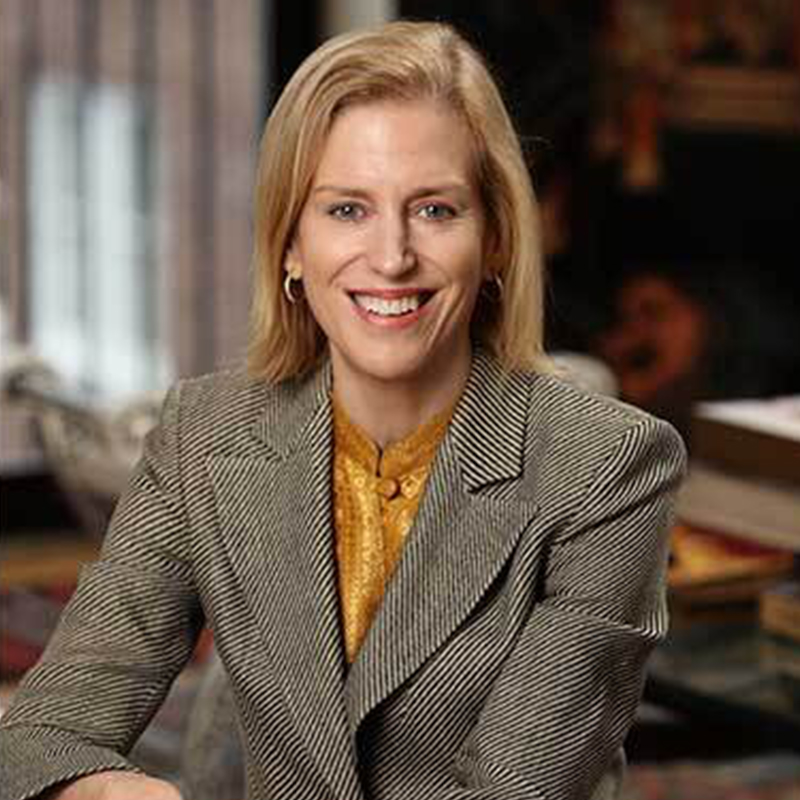
Beverly B. Martin, born on August 7, 1955, in Macon, Georgia, has had a distinguished career in the American legal system, marked by her commitment to justice and public service. A fourth-generation lawyer, she began her legal journey after earning a Bachelor of Arts from Stetson University in 1976, followed by a Juris Doctor from the University of Georgia School of Law in 1981.
Martin’s early career included private practice at Martin, Snow, Grant & Napier LLP in Macon, Georgia, from 1981 to 1984. She then served as an assistant attorney general for the State of Georgia from 1984 to 1994, representing the state in various civil cases. Her prosecutorial experience expanded when she became an assistant U.S. attorney for the Middle District of Georgia in 1994, and she was later appointed as the U.S. attorney for the same district in 1997.
In 2000, President Bill Clinton nominated Martin to the U.S. District Court for the Northern District of Georgia, where she served until 2010. During her tenure, she handled a wide range of cases, including significant rulings on constitutional protections and civil rights. Her judicial philosophy emphasized fairness and adherence to the rule of law.
Elevated to the U.S. Court of Appeals for the Eleventh Circuit by President Barack Obama in 2010, Martin served until her retirement in 2021. Her appellate opinions covered diverse areas such as arbitration enforcement, fair debt collection practices, employment discrimination, and class action litigation. Notably, she authored opinions in cases like Gherardi v. Citigroup Global Markets Inc. and EEOC v. Catastrophe Management Solutions, reflecting her nuanced understanding of complex legal issues.
After retiring from the federal bench, Martin became the executive director of the Center on Civil Justice at New York University School of Law, focusing on improving the civil justice system. In 2024, she joined JAMS as a mediator and arbitrator, bringing her extensive judicial experience to alternative dispute resolution. Her work at JAMS encompasses federal law, appellate matters, business and commercial disputes, employment law, bankruptcy, insurance, and product liability cases.
Throughout her career, Martin has been actively involved in various legal and civic organizations. She has served on the boards of the Campaign Legal Center and the Southern Center for Human Rights, among others. Her contributions to the legal field have been recognized with awards such as the Legal Legends Award from the American Constitution Society in 2021
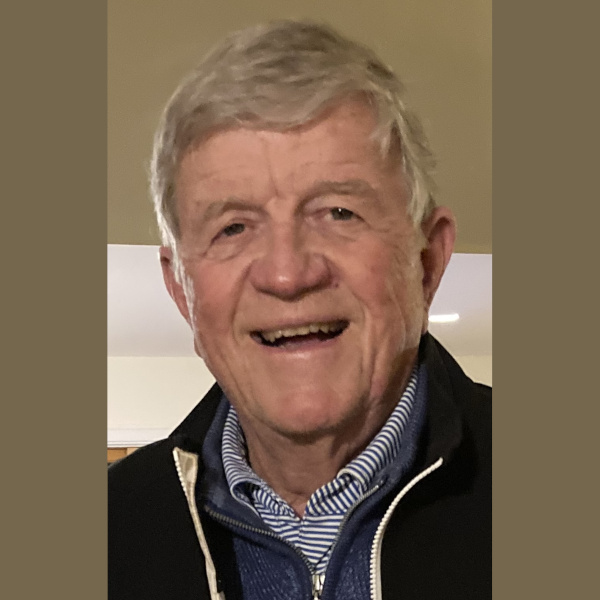
Judge John S. Martin Jr served as a United States District Judge for the Southern District of New York from 1990 to 2003. Judge Martin’s distinguished legal career has spanned more than six decades. Before his judicial appointment, Judge Martin served as the United States Attorney for the Southern District of New York from 1980 to 1983, leading one of the nation’s most prominent prosecutorial offices. Earlier in his career, he was an Assistant U.S. Attorney and Chief Appellate Attorney in the SDNY. He also served as an Assistant to the U.S. Solicitor General from 1967-1969. Judge Martin additionally held positions in private practice at several prominent firms, including Debevoise & Plimpton and Schulte Roth & Zabel, and was a founding partner of Martin & Obermaier.
Following his retirement from the bench, Judge Martin remained active in legal practice, serving an arbitrator and consultant in matters involving commercial contracts, executive compensation, insurance coverage, and construction claims—routinely handling disputes valued in the hundreds of millions of dollars.
Judge Martin is a graduate of Manhattan College (B.A., 1957) and Columbia Law School (LL.B., 1961). He clerked for Judge Leonard P. Moore on the U.S. Court of Appeals for the Second Circuit. Judge Martin is the recipient of the Emory Buckner Award from the Federal Bar Council and the Judge Edward Weinfeld Award from the New York County Lawyers Association. Though retired from active practice as of 2020, he continues to serve as a sought-after arbitrator and advisor on complex litigation.
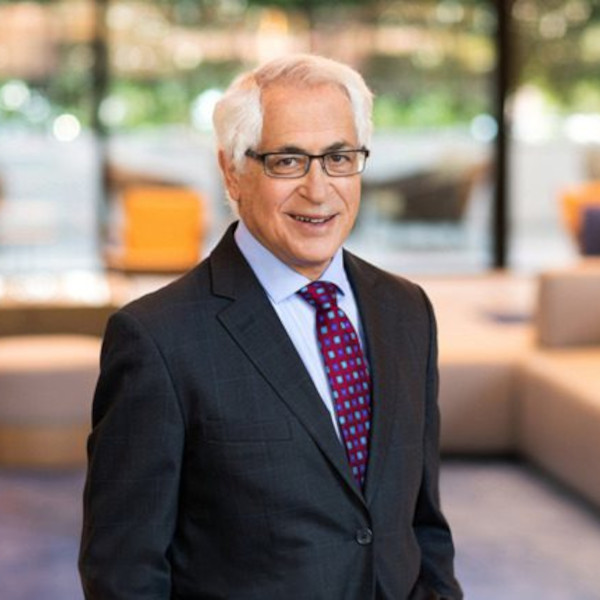
Judge A. Howard Matz (Ret.) is Senior Counsel at Bird Marella. After serving on the bench of the United States District Court for the Central District of California for nearly 15 years, in 2013 he rejoined the firm he helped launch in 1983, then known as Bird Marella Boxer Wolpert & Matz P.C. During his 15 years with the firm, he was one of the first attorneys listed in The Best Lawyers in AmericaR. Judge Matz is a Fellow of the American College of Trial Lawyers. He is a member of the California Bar and was licensed to practice in New York State for 50+ years.
Judge Matz was nominated to the federal bench by President Clinton and received his commission in June 1998. He presided over numerous noteworthy cases and several of his decisions were ultimately adjudicated by the Supreme Court. Judge Matz served on many judicial committees, including the Ninth Circuit Model Jury Instructions Committee. He chaired the District Court’s Pro Bono/Pro Se Committee and under his leadership, the Committee established the nation’s first walk-in Pro Se Clinic, which received widespread recognition. Additionally, Judge Matz was the first recipient of the “Vanguard Award” bestowed by the California State Bar for his contributions to intellectual property jurisprudence. Upon his retirement from the Bench, the Federal Bar Association sponsored a special Dinner Tribute for Judge Matz in recognition of his judicial service.
Education & Admissions:
Harvard Law School, J.D., 1968
Columbia University, A.B., cum laude, 1965
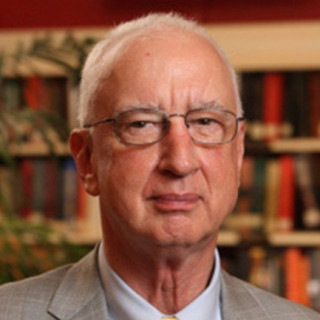
Judge Paul R. Michel served on the US Court of Appeals for the Federal Circuit from 1988 until retiring in 2010. He was appointed by President Reagan. From 2004 to 2010, he was chief judge. He simultaneously served on the Judicial Conference of the United States and, by appointment of the Chief Justice, its 7-judge executive committee. His judicial tenure followed long service in the Executive and Legislative branches.
He ran investigations as Deputy District Attorney in Philadelphia under Arlen Specter, then supervised a Watergate Special Prosecutor investigation of President Nixon’s slush fund operated by Bebe Rebozo and Rosemary Woods, following which Judge Michel was an assistant counsel for the Senate Intelligence Committee (Church Committee), Korea gate prosecutor and Deputy Chief of the Public Integrity Section and later Associate Deputy Attorney General, both in the US Department of Justice.
Immediately before appointment to the bench, he was counsel and chief of staff to Senator Arlen Specter. Since retiring for the courts, he consulted in major litigations, conducting mediations, arbitrations, and moot courts, also serving as an expect witness. He authored scores of articles on legal issues and spoke at dozens of conferences all around the US and abroad. He was educated at Williams College and the University of Virginia Law School.
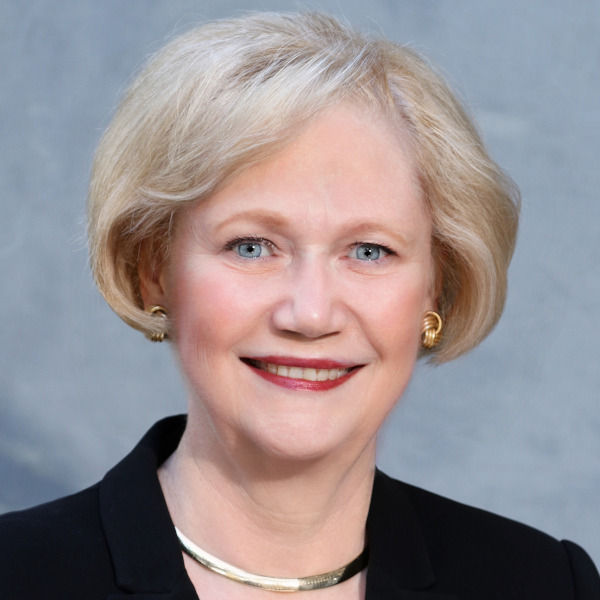
After twenty-five years as a trial and appellate lawyer, Margaret Morrow was appointed to the United States District Court for the Central District of California by President Bill Clinton on March 8, 1998. While on the bench, Morrow handled a wide range of civil and criminal cases. She spearheaded efforts to build a new federal courthouse in Los Angeles, which opened in October 2016. She also helped build and oversaw the Central District’s alternative dispute resolution program for over ten years. Morrow left the bench in January 2016 to become President and CEO of Public Counsel, a nonprofit public interest law firm that provides legal services free of charge to over 16,000 low income and underserved clients every year.
Morrow is a past president of the State Bar of California and was the first woman ever elected to that position. She also served as president of the Los Angeles County Bar Association and its Barristers, or Young Lawyers’, Section. Morrow recently served on the Legal Services Corporation’s Rural Justice Task Force and the American Academy of Arts and Sciences’ Advisory Committee on Access to Justice. She is a member of the Legal Service Corporation’s Leaders Council.
Morrow served for 18 years on the Board of Trustees of Bryn Mawr College and is currently an Emeritus Trustee of the college. She is also a member of the Board of Directors of the Carrie Estelle Doheny Foundation.
During her career, Morrow has received numerous awards, including the Outstanding Jurist Award and Shattuck-Price Award from the Los Angeles County Bar Association; the Bernard E. Witkin Amicus Curiae Award from the Judicial Council of California; the Ernestine Stahlhut Award from the Women Lawyers’ Association of Los Angeles; the 2011 Judge of the Year Award from the Association of Southern California Defense Counsel; the Maynard Toll Award from the Legal Aid Foundation of Los Angeles; the 2016 Impact Award from the Southern California Chinese Lawyers Association, and the 2019 Public Service Award from the National Association of Women Lawyers.
She is currently a mediator, arbitrator and private judge at Judicate West, where she assists parties with a wide variety of civil disputes.
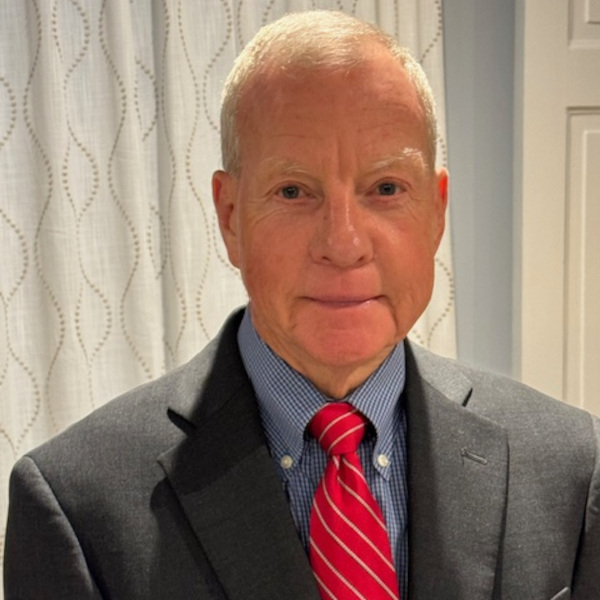
The Honorable Liam O’Grady is recently retired from the U.S. District Court for the Eastern District of Virginia. Judge O’Grady’s judicial career spanned more than two decades across some of the most sensitive and high-profile cases in the federal system. Appointed by President George W. Bush and confirmed in 2007, Judge O’Grady presided over civil and criminal matters from one of the nation’s most active federal courthouses until taking senior status in 2020 and fully retiring in 2023. He also served on the United States Foreign Intelligence Surveillance Court from 2020-2023. Prior to his district court appointment, Judge O’Grady served as a U.S. Magistrate Judge (2003–2007), Assistant U.S. Attorney (1986–1992), and Assistant Commonwealth’s Attorney in Virginia (1982–1986). From 1992-2003 Judge O’Grady was a partner and trial lawyer for the Intellectual Property law firm Finnegan, Henderson, Farabow, Garrett and Dunner. Judge O’Grady is passionate about the art of trial advocacy, and teaches it at the National College of Trial Advocacy at the University of Virginia and the George Washington University School of Law.
A native of Newark, New Jersey, Judge O’Grady earned his undergraduate degree from Franklin & Marshall College and his J.D. from George Mason University School of Law. For his public service, Judge O’Grady has received numerous awards and recognitions, including the U.S. Attorney General’s Award for Distinguished Service and being the namesake of the Annual Mentorship Award for the U.S. Attorney’s Office for the Eastern District of Virginia. Although retired from the bench, Judge O’Grady still is active in litigation strategy and trial consulting as well as mediation through his consulting firm, Liam O’Grady Consulting LLC.
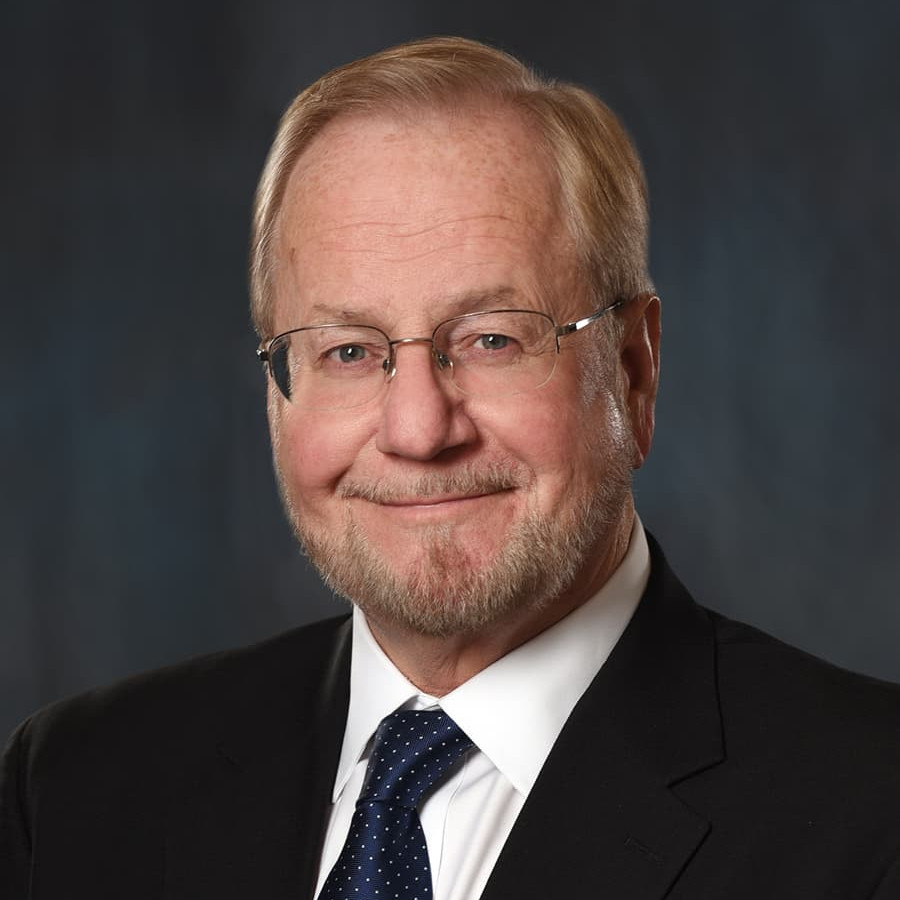
Philip M. Pro retired in January 2015, after nearly 35 years service with the federal judiciary. He was appointed United States District Judge for the District of Nevada by President Ronald Reagan and confirmed by the United States Senate on July 23, 1987. He served as Chief Judge for the District of Nevada from 2002 to 2007. On January 1, 2012, Judge Pro commenced service as a Senior United States District Judge. Prior to his appointment as District Judge, Judge Pro served as United States Magistrate Judge from 1980 to 1987.
Since his retirement from the federal bench, Judge Pro has provided arbitration, mediation, and other alternative dispute resolution services through JAMS, the largest provider of ADR services in the United States. Additionally, in November 2015, Governor Brian Sandoval appointed Judge Pro as a Member of the Nevada Gaming Commission on which he served throught April 2019.
Judge Pro received his J.D. degree from Golden Gate University School of Law in 1972. He received an LL.M. in Judicial Studies at Duke University School of Law in 2014.
Judge Pro has dedicated his legal career to public service. He commenced service in Nevada in 1972 as a law clerk for the Honorable William P. Compton, Eighth Judicial District Court in Las Vegas, Nevada. From 1973 to 1975 he served as a Deputy Public Defender for Clark County, Nevada; as an Assistant United States Attorney both in Las Vegas from 1975 to 1977 and in Reno from January – September 1980; as a partner in the law firm of Semenza, Murphy and Pro in Reno from 1977 to 1979; and as Deputy Attorney General for the State of Nevada assigned to the Gaming Division from 1979 to 1980.
In October 1993, Chief Justice Rehnquist appointed Judge Pro as Chair of the Committee on the Administration of the Magistrate Judges System of the Judicial Conference of the United States, a position he held through October 1998. Chief Justice Roberts appointed Judge Pro to a four year term on the Board of the Federal Judicial Center in July 2007.
Judge Pro served as a member of the Board of Directors of the Federal Judges Association from 1992 to 2001, and served as vice president from 1997 to 2001. He also served as a member of the Ninth Circuit Wellness Committee from 2001 to 2010, and as Chair of the Committee from 2005-2010. He was a member of the Ninth Circuit Jury Instructions Committee from 1987 to 2002. He is a founding member of the Howard D. McKibben Nevada American Inn of Court, serving as its President from 1988 to 1990.
Judge Pro served on the Advisory Board for the founding of the William S. Boyd School of Law at the University of Nevada at Las Vegas, and has served as an Adjunct Professor of Law at Boyd teaching Trial Advocacy. Pro also serves also as a member of the Board of the Saltman Center for Conflict Resolution at the Boyd School of Law.
In March 2004, the William S. Boyd School of Law established the Philip Pro Lectureship in Legal History with the inaugural lecture presented by Pulitzer prize-winning historian Gordon Wood. Subsequent lecturers have included Geoffrey Stone, Jack Rakove, Sara Barringer Gordon, and Larry Kramer.
Since 1998, Judge Pro has participated in a variety of international “Rule of Law” programs with judiciaries from over 20 countries including Hungary, Georgia, Bosnia, Netherlands, Spain, Malawi, Kyrgyzstan, Jordan, Pakistan, South Africa, Norway, Iraq, Afghanistan, Mexico, Thailand, Malaysia, Australia, Indonesia, Armenia, Columbia, Latvia, Ukraine, Azerbaijan, and China. In March 2003, he was a co-moderator for the U.S. Department of Justice Colloquium for Iraqi Jurists in Washington, D.C.
Judge Pro is active locally and nationally in the We, the People…the Citizen and the Constitution program sponsored by the Center for Civic Education. Additionally, he currently serves as Chair of the State Bar of Nevada Law Related Education Consortium, and has participated in a wide variety of continuing legal education programs sponsored by local, state and national bar associations, including the Department of Justice Attorney General Advocacy Institute, and the National Institute for Trial Advocacy.
Judge Pro has authored a variety of articles in local and state bar publications. He is co-author of Measured Progress, the Evolution and Administration of the Federal Magistrate Judges System, The American University Law Review, Vol. 44, 1995, No. 5, and author of Mis(understanding) Judging, Nevada Law Journal, Vol. 7, 2007, No. 2, and United States Magistrate Judges: Present But Unaccounted For, Nevada Law Journal, Vol. 16, 2016.
As a Magistrate Judge, Judge Pro presided over pre-trial proceedings in the MGM Grand Hotel Fire Litigation. He has presided over countless civil and criminal cases during his more than 34 years on the federal bench, and has conducted hundreds of trials including the assault claims brought by Navy Lt. Paula Coughlin against the Tailhook Association and Las Vegas Hilton, Coughlin v. Tailhook Assoc.; the injury and environmental claims brought by workers at the Area 51 location near Groom Lake, Nevada, Frost v. Perry and Kaza v. Browner; the radiation exposure injury claims brought by workers at the Nevada Test Site, Prescott v. United States; the Trademark Infringement suit brought by the family and heirs of Bob Marley, Fifty-Six Hope Road Music Ltd v. A.V.E.L.A.; and the patent infringement claims brought in Symbol Technologies v. Lemelson.
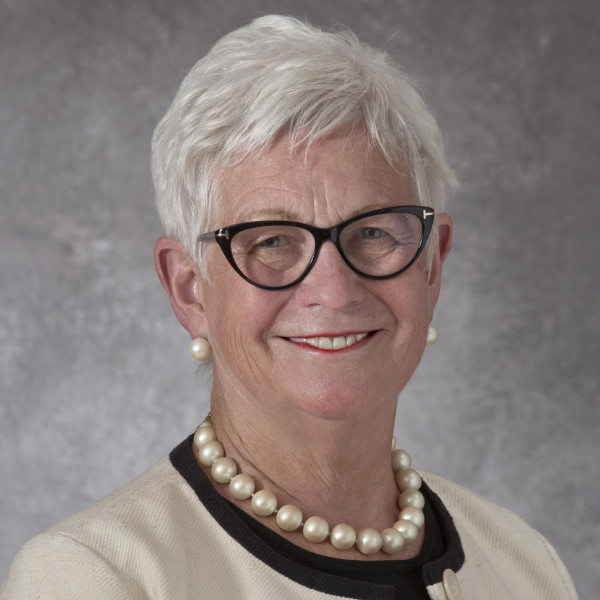
Hon. Deanell Reece Tacha (Ret.) served on the Tenth Circuit Court of Appeals for 25 years. She was Chief Judge of that court from 2001-2008. Prior to her appointment to the Court, she was a Professor of Law and Vice Chancellor for Academic Affairs at the University of Kansas. Following her retirement from the Tenth Circuit she served as Dean of the Pepperdine University School of Law from 2011-2017. Since that time she has been an arbitrator and mediator with JAMS. During her time on the bench she was chair of the Judicial Conference Committee on the Judicial Branch for two terms and served on the Judicial Conference of the United States. She was a member of the United States Sentencing Commission for several years. She is the recipient of the Devitt Award for Distinguished Service to the Federal Judiciary and of the ABA’s John Marshall Award for Distinguished Service to the Legal Profession. She and her husband, John, have four children and seven grandchildren.
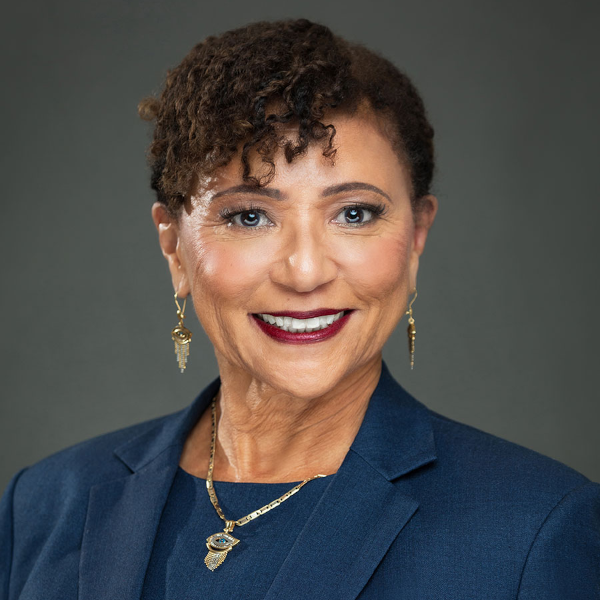
The Honorable Victoria S. Roberts served as a judge on the United States District Court for the Eastern District of Michigan from 1998 until her retirement in 2023. President Bill Clinton appointed her to the bench and the Senate confirmed her unanimously. While on the bench, Judge Roberts presided over thousands of cases and hundreds of trials and hearings on nearly every subject and cause of action within the jurisdiction of federal trial courts, including several notable challenges to presidential action. During her time on the federal bench, she was also a moving force to create a pro se prisoner mediation program and a pro se clinic.
Before her judicial service, Judge Roberts represented the United States as an Assistant U.S. Attorney. She also served as counsel for the state of Michigan, the Detroit Building Authority, the Economic Corporation for the City of Detroit, the American Motors Company, and individual plaintiffs and defendants in private industry. Throughout her legal career Judger Roberts blazed a trail for native Detroiters, women, African Americans, lawyers, judges, and members of the public at large. She pioneered new initiatives in the federal courts and her community and also taught at the University of Michigan Law School.
A native of Detroit, Michigan, Judge Roberts received her BA from the University of Michigan and her law degree from Northeastern University School of Law. She is the recipient of many awards, including a Legacy Award of the American Civil Liberties Association, the Lifetime Judicial Achievement Award from the American Board of Trial Advocates, and the Dennis W. Archer Public Service Award from the Detroit Metropolitan Bar Association Foundation. A scholarship has also been established in her name by the Wolverine Bar Association, a Michigan branch of the National Bar Association.
Currently Judge Roberts works as a mediator, arbitrator, and neutral evaluator with JAMS, handling cases and appointments in a wide range of legal matters. She brings to that task her wide and varied judicial and legal experience, along with her recognition of the human element in legal disputes and her commitment to fair and even-handed justice.
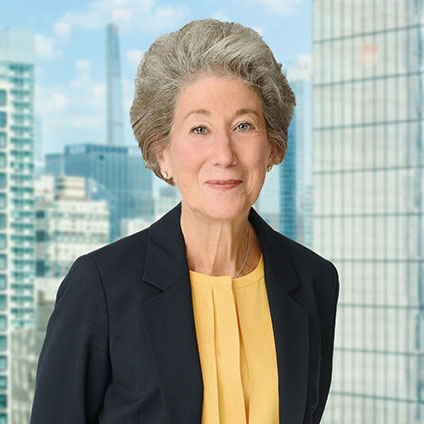
Appointed to the federal bench by former President Bill Clinton, the Hon. Shira A. Scheindlin served as a United States District Judge in the Southern District of New York for 22 years. Additionally, she sat by designation on the U.S. Court of Appeals for the Second and Ninth Circuits.
Throughout her more than two decades on the federal bench, Judge Scheindlin oversaw a wide range of high-profile matters relating to criminal law, financial services and securities laws, electronic discovery, civil rights and more. Earlier in her career, she served as Chief Administrative U.S. Attorney and Deputy Chief of the Economic Crimes Unit in the U.S. Attorney’s Office for the Eastern District of New York. She was also general counsel of the New York City Department of Investigations and a Magistrate Judge in the Eastern District.
Since leaving the bench in May 2016, Judge Scheindlin has overseen many mediations and arbitrations, and served as a court-appointed special master, mock trial judge, and expert witness. She is the Immediate Past Co-Chair of the Board of Directors for the Lawyers’ Committee for Civil Rights Under Law. Judge Scheindlin is currently Of Counsel at Boies Schiller Flexner.
A native of Washington, D.C. Judge Scheindlin earned a Bachelor of Arts degree in Far Eastern studies from the University of Michigan (1967), a Master of Arts in history from Columbia University (1969), and a Juris Doctor from Cornell Law School (1975).
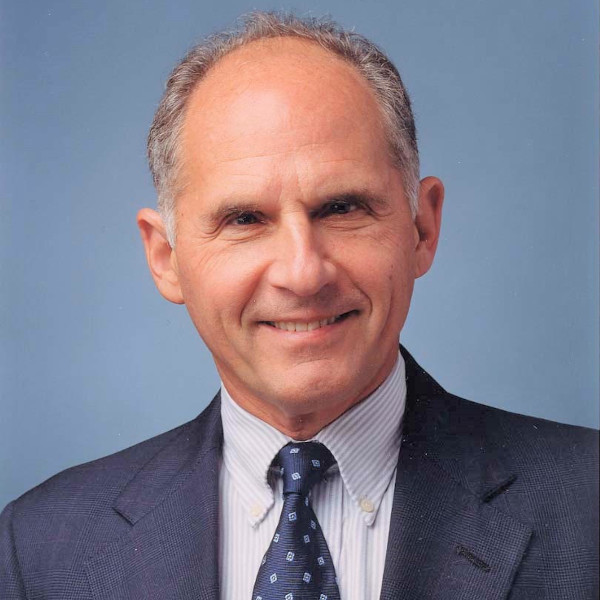
Judge David Tatel served on the United States Court of Appeals for the District of Columbia Circuit from 1994 to earlier this year. After graduating from the University of Michigan and the University of Chicago Law School (1966), he served as the founding director of the Chicago Lawyers’ Committee for Civil Rights Under Law and then director of the National Lawyers Committee. He headed the Office for Civil Rights of the US Department of Health, Education, and Welfare during the Carter administration (1977-1979) and then founded and led the education practice at Hogan Lovells(1979-1994), where he is now Senior Counsel. Judge Tatel is a member of the American Philosophical Society and the American Academy of Arts and Sciences. In the past, he co-chaired the National Academy of Sciences’ Committee on Science, Technology and Law, and chaired the boards of The Spencer Foundation and The Carnegie Foundation for the Advancement of Teaching. Judge Tatel and his wife, Edie, live in Virginia and Washington, D.C. They have four children, eight grandchildren, and one great-grandchild.
Judge Tatel’s memoir, Vision: A Memoir of Blindness and Justice, was published on June 11, 2024 by Little Brown. Its available in Hardcover, Audiobook and Kindle on Amazon.
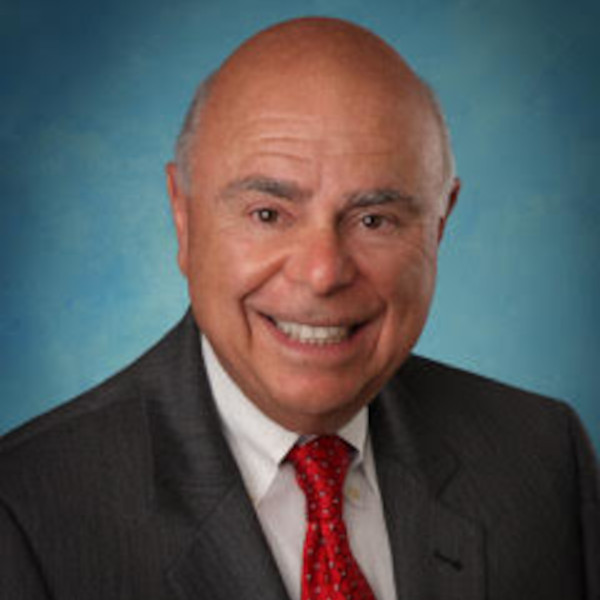
The Honorable Dickran M. Tevrizian Jr. was the first Armenian-American to have served as a federal judge when he was appointed to the United States District Court for the Central District of California by President Ronald Reagan in 1985. A position he held until his retirement from the bench in 2007.
Judge Tevrizian has devoted his life’s work to the judicial system. In 1972, at age 31, he was appointed to the Los Angeles Municipal Court—making him one of the youngest judges to ever be appointed to the judiciary. In 1978, Governor Edmund Brown, Jr. elevated Judge Tevrizian to the Superior Court of the State of California for the County of Los Angeles.
Before becoming a Municipal Court judge, Tevrizian was an associate and then a partner at Kirtland & Packard, LLP in Los Angeles, California. From 1982 until his appointment to the United States District Court, Tevrizian practiced law in the Southern California as a partner in the law firm of Manatt Phelps Rothenberg & Tunney and then was Of Counsel to the law firm of Lewis, D’Amato, Brisbois & Bisgaard.
A California native, Judge Tevrizian grew up in Los Angeles and graduated cum laude from the University of Southern California with a B.S. in finance in 1962. He then went on to receive his J.D from the U.S.C. Gould School of Law in 1965.
Judge Tevrizian’s influence on the law is exemplified by his numerous awards beginning with Trial Judge of the Year by the California Trial Lawyers Association in 1987 and Federal Court Trial Judge of the Year by the Malibu Bar Association in 1998. That same year he was awarded the Peter the Great Gold Medal of Honor from the Russian Academy of Natural Sciences for outstanding contributions to the field of law. From 1994 to 1995, Judge Tevrizian was also named Trial Jurist of the Year by the Los Angeles County Bar Association and in 1999 he was given the Ellis Island Medal of Honor. In 2002, Judge Tevrizian was awarded the Maynard Toll Award from the Los Angeles County Bar Association for his service to the underprivileged. The following year, he was given the Distinguished Public Service Award from the Orange County Federal Bar Association and in 2005 the Justice Armand Arabian Leaders in Public Service Award. In 2005, Judge Tevrizian received the Emil Gumpert Award for his efforts in promoting alternative dispute resolution. In recent years, he has been recognized twice as a Top 50 California Neutral in Daily Journal in 2010 and 2012, and as a Best Lawyer by Best Lawyers in America from 2020-2024.
Beyond his professional accolades, Judge Tevrizian has been a lecturer for numerous Bar Associations, California Continuing Education Programs, and State Bar Mandatory Continuing Legal Education Seminars. He has also served on the Board of Directors for various charitable organizations such as the Armenian General Benevolent Union (A.G.B.U.) and Exceptional Children’s Foundation. Judge Tevrizian also sat on the Advisory Board of LegalZoom and served as a member of the Board of Directors for Children’s Hospital of Los Angeles and Tutor Perini Corporation.
Judge Tevrizian currently works as a mediator with JAMS Dispute Resolution Services.

The Honorable John D. Tinder was a Judge on the United States Court of Appeals for the Seventh Circuit from 2007 to 2015 and a District Judge on the United States District Court for the Southern District of Indiana from 1987 to 2007. He was appointed to the District Court by President Ronald Reagan and to the Seventh Circuit by President George W. Bush. The Senate confirmed his appointment to the Seventh Circuit by a vote of 93-0. While on the bench, Tinder presided over thousands of cases and hundreds of trials, hearings, and appeals on nearly every subject and cause of action within the jurisdiction of federal courts.
Prior to his judicial service, Tinder was the United States Attorney for the Southern District of Indiana, serving as the chief federal law enforcement officer for the district. Before his three presidential appointments, Tinder spent seven years in private practice and served as both a Marion County public defender and prosecutor.
A proud native of Indiana, Judge Tinder received both his bachelor and law degrees from Indiana University. He is the recipient of many awards including Wabash College’s David W. Peck Medal in 2015, Indianapolis Bar Association’s Silver Gavel Professionalism Award in 2007, Brebeuf Jesuit Preparatory School’s Fred B. McCashland Outstanding Alumnus Award in 2005, and Wheeler Boys and Girls Club’s Volunteer of the Year in Indianapolis in 1988. He was also named a Fellow by Academy of Law Alumni at Indiana University School of Law Bloomington in 2007.
Currently, Judge Tinder applies this wealth of experience at Kaplan & Grady, LLC in Chicago, Illinois, which hosts and supports his dispute-resolution practice. He is also a unique resource for firm clients, assisting counsel and parties with the analysis and assessment of trial and appellate matters.
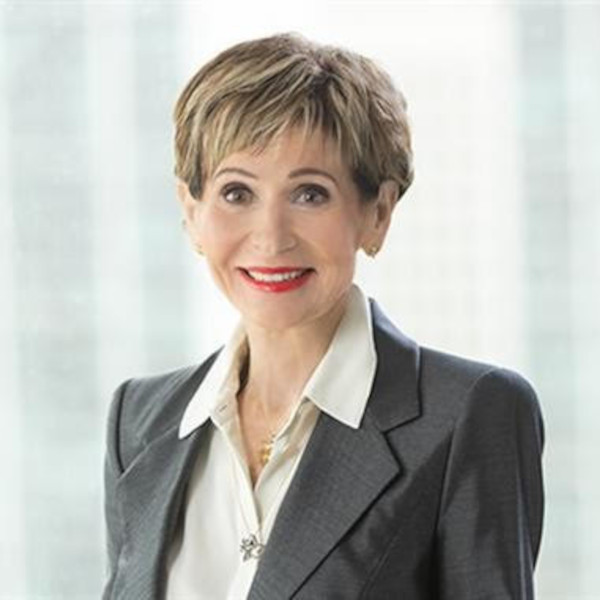
Judge Ursula Ungaro retired from the federal bench of the Southern District of Florida in 2021. Judge Ungaro was appointed to serve as a federal judge in 1992 after being nominated by President George H.W. Bush and confirmed by the U.S. Senate. In her time on the federal bench, she presided over and ruled in numerous major civil and criminal cases. These matters required the application of constitutional, federal and state law and the resolution of complex legal issues in virtually every area of the law.
During her long tenure on the federal bench, Ms. Ungaro served on national, regional, and local committees responsible for court administration. Most notably, she served for eight years as a member of the Judicial Resources Committee of the Judicial Conference of the United States, which committee is responsible for making compensation and other human resource-related recommendations to the Chief Justice of the United States Supreme Court. She also served as Chair of the Southern District of Florida’s Clerks Committee and the Magistrate Judges Committee from time to time at the pleasure of the Chief Judge.
Following her graduation with honors from the University of Florida School of Law in 1975 (one of just 17 women in a class of about 250), Ms. Ungaro practiced law in Miami, Florida where in 1981 she became a partner in Tew, Critchlow, Sonberg, Traum & Friedbauer, P.A. (later merged into Finley, Kumble, Wagner, Heine, Underberg, Manley, Myerson & Casey, a national law firm). She subsequently joined Sparber, Shevin, Shapo & Heilbronner, a prestigious local law firm, as a partner. She practiced law mainly in the area of complex commercial litigation, including in the areas of securities, corporate and tax law. From 1987 to 1992, Ms. Ungaro served as a trial judge on the Eleventh Judicial Circuit of the State of Florida. She has authored published articles in the areas of administrative law, legal ethics, and civil procedure. She is the recipient of many awards and has been recognized on several occasions for her achievements in the law and service to the community.
Ms. Ungaro serves on the board of directors of Longeveron, Inc., a publicly traded company registered on the NASDAQ and on the board of directors of Bradford Holdings, Inc. a privately held holding company. She also has had numerous community involvements. Among others, she served on the Florida Supreme Court Race and Bias Commission, she currently serves on the Board of Directors of the Family Learning Partnership, a not-for-profit that supports needy families with educational and related resources, and participates on a voluntary basis (having formerly participated in her judicial capacity) in CARE Court, a court-assisted reentry program for moderate and high risk offenders recently released from prison.
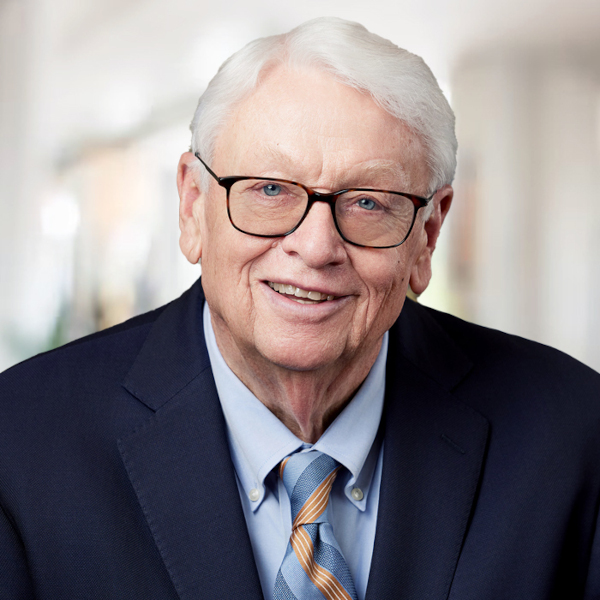
T. John Ward graduated from Texas Tech University in 1964, with a degree in Chemistry, and obtained his law degree from Baylor University in 1967. He spent 31 years a trial lawyer before serving as a United States District Judge for the Eastern District of Texas from September 24, 1999 until his retirement on October 1, 2011. After his retirement from the bench, he returned to private practice and currently serves as of counsel for Miller Fair Henry, PLLC.
Throughout his career, Judge Ward has received numerous awards and accolades. He is a Fellow of both the American College of Trial Lawyers, the International Academy of Trial Lawyers, and a Life Fellow of the Texas Bar Foundation and American Bar Association. In 2004, Baylor University named Judge Ward Baylor Lawyer of the Year. The American Inns of Court, in cooperation with the members of the local bar, chartered the Honorable T. John Ward American Inn of Court for East Texas in 2006. In 2009, the Texas Chapters of American Board of Trial Advocates named Judge Ward Trial Judge of the Year. Judge Ward was selected as one of the Top 25 Most Influential People in IP by a publication of American Lawyer magazine in 2010. In 2014, Texas Tech Alumni Association awarded him the Distinguished Alumni Award. He was named as one of “50 Lions of the Texas Bar” in 2017 and received the Outstanding 50-year Lawyer Award from the Texas Bar Foundation in 2022.
Throughout his career, Judge Ward has been active in his community, serving on boards for charitable foundations and the local hospital. Judge Ward and his wife Cissy have been married for 60 years. They have three children, seven grandchildren, and one great-grandchild.
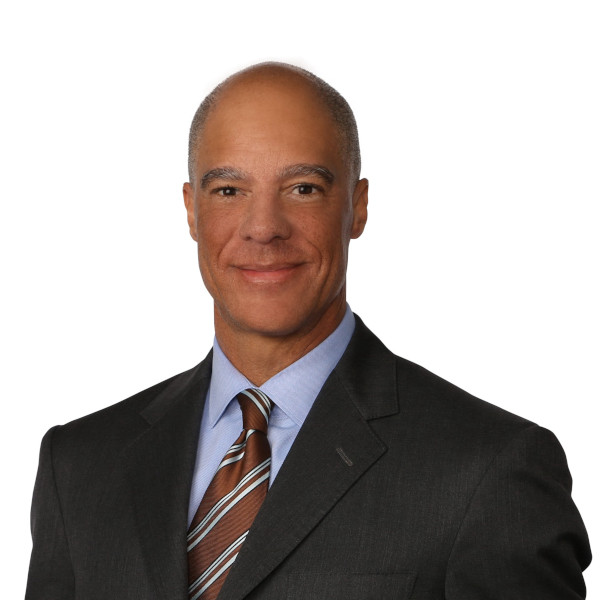
Paul Watford is a litigation partner in the Los Angeles office of King & Spalding. He joined the firm in February 2025 after serving for 11 years as a Circuit Judge on the U.S. Court of Appeals for the Ninth Circuit.
Paul received his undergraduate degree from the University of California at Berkeley in 1989 and his law degree from the UCLA School of Law in 1994. From 1994-1995, Paul served as a law clerk to Judge Alex Kozinski of the U.S. Court of Appeals for the Ninth Circuit, and from 1995-1996 he served as a law clerk to Justice Ruth Bader Ginsburg of the U.S. Supreme Court. From 1997 to 2000, Paul served as an Assistant U.S. Attorney in Los Angeles, and from 2001 until his appointment to the bench, Paul was in private practice at Munger, Tolles & Olson LLP in Los Angeles, where his practice focused primarily on appellate litigation.
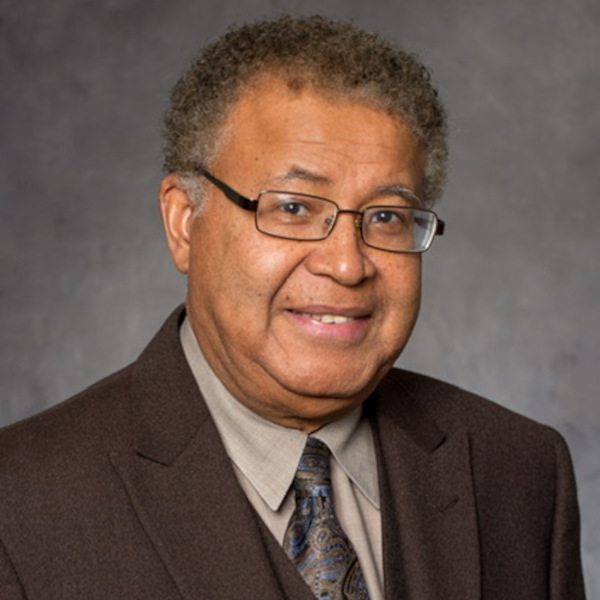
Following his nomination and confirmation by the United States Senate Alexander Williams, Jr. served as a federal judge on the United States District Court for the District of Maryland from September 2, 1994, to January 3, 2014. Prior to his appointment to the federal bench, Judge Williams was Chairman of the Washington Suburban Sanitary Commission and also served two terms from 1987 to 1994 as the elected State’s Attorney for Prince George’s County, Maryland. Following his retirement from the federal bench, Judge Williams Judge Williams found and is the CEO of the Judge Alexander Williams, Jr. Center for Education, Justice and Ethics, Inc., a nonprofit policy center which is a part of the College of Behavioral and Social Sciences at the University of Maryland, College Park campus. Judge Williams served as Chair of the seven-member Commission to Restore Integrity in Policing (for Baltimore City) which issued its final report on December 2, 2020.
Judge Williams served in 2021 as co-chair of the Maryland Citizens Redistricting Commission, served for eight years (2015-2023) as the Chair of the Maryland Appellate Nominating Commission, recently completed his service as Vice Chairman of the University of Maryland Medical System Board of Directors, and presently serves as Chairman of the University of Maryland Capital Region Hospital Board of Directors.
Judge Williams is a native of Washington, D.C. and has practiced law in both the State of Maryland and the District of Columbia. Judge Williams previously served as a tenured Professor of Law at Howard law school and presently teaches a seminar course in public ethics at Howard as an adjunct professor of law. In addition to his judicial, community and professorial service, Judge Williams has lectured and participated in numerous conferences abroad including visits to Sofia, Bulgaria; Vitoria, Brazil; a Accra, Ghana; Dar es Salaam, Tanzania; Bamako, Mali; and to the region of Hong Kong as well as to the provinces of Guanzhou and Beijing in China. Judge Williams has also participated in several international seminars on judicial independence and other rule of law issues, while attending conferences in Accra, Ghana; Dar es Salaam, Tanzania; and Bamako, Mali.
Judge Williams is a graduate of Howard University where he earned a B.A. (Bachelor of Arts) in Government; a M.A.R.S. (Master of Arts in Religious Studies); and a J.D. (Juris Doctor, cum laude); and also graduated from Temple University where he earned a Master of Arts Degree in Religion/Ethics.
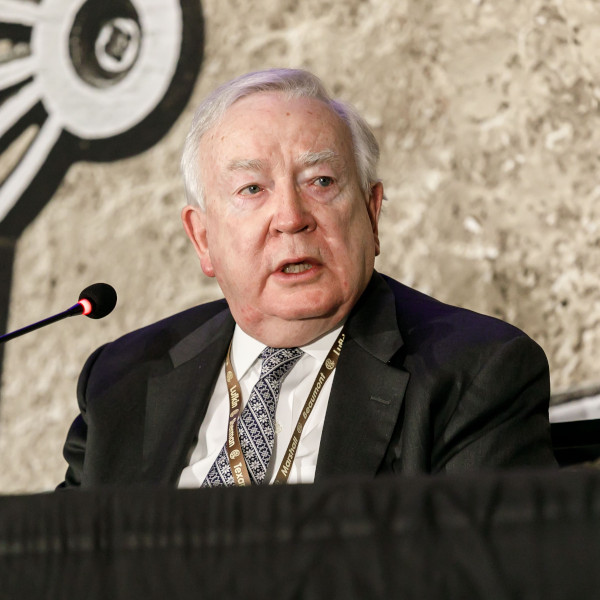
Lee Yeakel returned to private practice in May 2023, after retiring as a United States District Judge for almost 20 years. Before taking the federal bench, he served five and a half years on the Third Court of Appeals of Texas (A Texas intermediate appellate court) first as Chief Justice, then as a Justice.
Before his judicial tenure, he handled both trial and appellate matters. He was named “Outstanding Jurist” by the Texas Bar Foundation as well as the University of Texas Law School Journal of Litigation. The Texas Bar Foundation also named him an “Outstanding 50-Year Lawyer” and the Austin Bar Foundation named him a “Distinguished Lawyer”. He is a recipient of the Austin Chapter of the American Board of Trial Advocates Judicial Courage Award. He is a former President of the Robert W. Calvert American Inn of Court and the Honorable Lee Yeakel Intellectual Property American Inn of Court, which is named in his honor. He is a life member of the Uniform Law Commission. He was a member of the United States Delegation to the Hague Convention on Private International Law, Treaty on the Recognition and enforcement of foreign judgments in civil and commercial matters and was a signatory of that treaty on behalf of the United States.
He has been active in civic matters. A former United States Marine, he and his wife have two children and two grandchildren.

Additional Judges Coming Soon
Senior Advisors
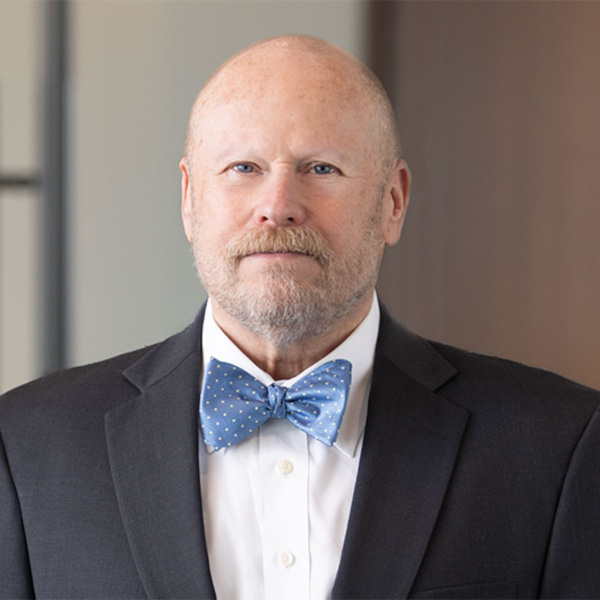
Michael Gans is a 1977 graduate of Washington University School of Law and worked more than forty years in Missouri and federal appellate courts, as a law clerk and administrative assistant to the chief judges of the Missouri Court of Appeals for the Eastern District of Missouri and as chief deputy clerk and Clerk of Court for the United States Court of Appeals for the Eighth Circuit. At the time of his retirement as Eighth Circuit Clerk in April 2024, Gans had served nearly thirty-three years in that position and was, at the time, the longest-serving federal appellate clerk. In his time at the Eighth Circuit he served on numerous national judiciary committees, including serving as the chair of the appellate clerk’s committee and as clerk liaison to the Federal Appellate Rules Committee. Gans also served as an editor of the 8th Circuit Appellate Practice Manual through its first ten editions. Following his retirement from the Eighth Circuit, Gans joined the St. Louis law firm of Dowd Bennett, where he serves of counsel.
In 2001, Gans received the Director’s Award for Outstanding Leadership, which recognizes a court employee who best exemplifies the Federal Judiciary’s commitment to exemplary performance, innovation, and dedication to public service. He is a member of the Board of Directors of the Eighth Circuit Bar Association, the Executive Committee of the Eighth Circuit Historical Society, and the Board of the Thomas F. Eagleton Judicial Learning Center.
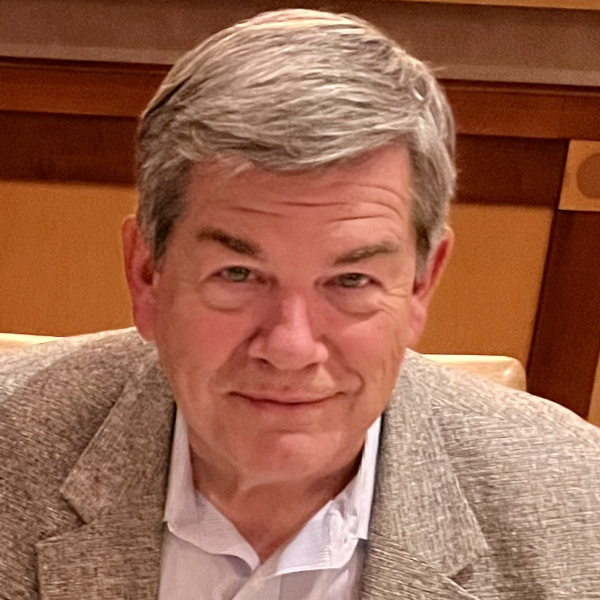
Robb Jones is mostly retired after decades of experience in private legal practice, education, and government service. From 1991-1997 he served as Administrative Assistant to Chief Justice William H. Rehnquist and as Director of Judicial Education at the Federal Judicial Center. He followed that service with almost a quarter-century as General Counsel at a risk management and insurance risk retention group owned by 1600 schools, colleges, and universities. Jones was elected to the American Law Institute in 2017 and is a Life Member of the National Association of College and University Attorneys. He currently serves as a volunteer civic educator and historical tour guide at the George C. Marshall International Center.
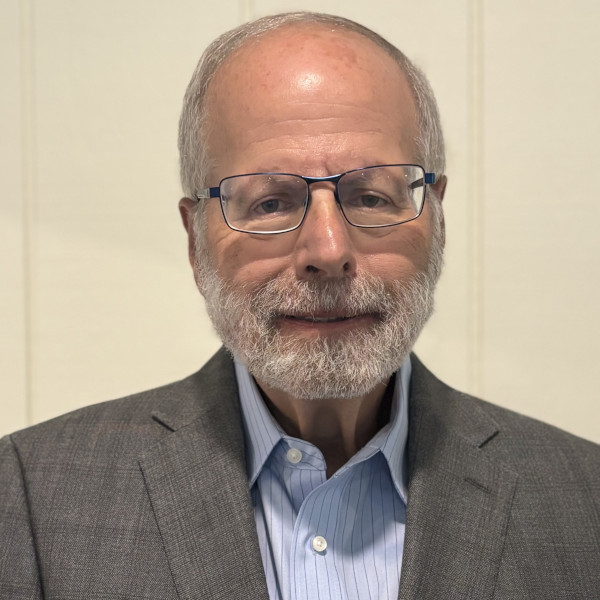
David A. Sellers served as the Public Affairs Officer at the Administrative Office of the United States Courts (AO) in Washington, D.C. He oversaw communications strategy, media relations, community outreach, video broadcasting, and web communications programs for the AO and provided advice to federal courts in these areas. He also served as the principal media spokesperson for the federal judiciary and the Judicial Conference of the United States. Mr. Sellers joined the AO in1987, when he started the public affairs office as the agency’s first Public Information Officer, and retired in September 2023.
He has served on the faculty of the National Judicial College and the Federal Judicial Center and trained judges and court staff in Croatia, Jordan, Romania, Bulgaria, Algeria, Morocco and throughout the United States in court/public affairs issues. Mr. Sellers is a past President of the Conference of Court Public Information Officers and has served on the National Advisory Council for the Reynolds National Center for Courts and the Media and the National Advisory Council of the American Judicature Society.
Mr. Sellers previously worked as a reporter for Washington Times, a daily newspaper in the nation’s capital, where he covered federal, state, and local courts. He served as editor of Bar Report, the official newspaper of the D.C. Bar; a public information officer for the Pennsylvania Department of Justice; a syndicated columnist for Copley News Service; and a reporter for the Main Line Times in suburban Philadelphia. Mr. Sellers graduated from Dickinson College in 1978.

AN OPEN LETTER FROM AMERICA’S FORMER FEDERAL JUDGES
As our nation approaches its 250th anniversary, the role of our federal judiciary faces increasing scrutiny. Our founders envisioned a nation of laws, premised on three separate and coequal branches of government. For nearly two-and-a-half centuries, this structure of our constitutional democracy has served as a beacon of light at home and abroad.
We, as former members of the federal judiciary, care deeply about our Constitution and our Country. While the debate over the metes and bounds of each branch is older than the Republic itself, the need for an independent judiciary, free from coercion, has never been questioned. As Alexander Hamilton reminded his countrymen, “there is no liberty, if the power of judging be not separated from the legislative and executive powers.”
The approaching semiquincentennial is surely a time for reflection on these founding principles, but it is also a time for action. Although we come from different corners of America and have been appointed by Presidents of both parties, we former members of the third branch are ready for our third act.
We pledge not only to keep our Republic, but to strengthen it. To defend the rule of law. To protect the independence of the judiciary. To kindle and inspire an informed citizenry. And to dedicate ourselves to the unending duty of protecting our sacred democracy.
For the light of a democracy is not doused, but its unstoked flames can weaken and become faint. We call on all our former colleagues to join us in tending to our democracy through the Article III Coalition.
Sincerely,
Keep Our Republic’s Article III Coalition:
Judge Wayne R. Andersen – Formerly of the U.S. District Court for the Northern District of Illinois
Judge John W. Bissell – Formerly of the U.S. District Court for the District of New Jersey
Judge Michael Burrage – Formerly of the U.S. District Courts for the Eastern, Northern & Western Districts of Oklahoma
Judge Robert J. Cindrich – Formerly of the U.S. District Court for the Western District of Pennsylvania
Judge David H. Coar – Formerly of the U.S. District Court for the Northern District of Illinois
Judge Andre M. Davis – Formerly of the U.S. District Court for the District of Maryland & U.S. Court of Appeals for the Fourth Circuit
Judge Bernice B. Donald – Formerly of the U.S. District Court for the Western District of Tennessee & U.S. Court of Appeals for the Sixth Circuit
Judge William F. Downes – Formerly of the U.S. District Court for the District of Wyoming
Judge Allyson K. Duncan – Formerly of the U.S. Court of Appeals for the Fourth Circuit
Judge Gary E. Feess – Formerly of the U.S. District Court for the Central District of California
Judge Jeremy D. Fogel – Formerly of the U.S. District Court for the Northern District of California
Judge Royal Furgeson, Jr. – Formerly of the U.S. District Courts for the Western District of Texas & Northern District of Texas
Judge Vanessa D. Gilmore – Formerly of the U.S. District Court for the Southern District of Texas
Judge Irma E. Gonzalez – Formerly of the U.S. District Court for the Southern District of California
Judge Paul W. Grimm – Formerly of the U.S. District Court for the District of Maryland
Judge Andrew J. Guilford – Formerly of the U.S. District Court for the Central District of California
Judge Thelton Henderson – Formerly of the U.S. District Court for the Northern District of California
Judge Robert H. Henry – Formerly of the U.S. Court of Appeals for the Tenth Circuit
Judge Faith S. Hochberg – Formerly of the U.S. District Court for the District of New Jersey
Judge Richard J. Holwell – Formerly of the U.S. District Court for the Southern District of New York
Judge John E. Jones III – Formerly of the U.S. District Court for the Middle District of Pennsylvania
Judge Abdul K. Kallon – Formerly of the U.S. District Court for the Northern District of Alabama
Judge George H. King – Formerly of the U.S. District Court for the Central District of California
Judge Robert B. Kugler – Formerly of the U.S. District Court for the District of New Jersey & U.S. Foreign Intelligence Surveillance Court
Judge Timothy K. Lewis – Formerly of the U.S. District Court for the Western District of Pennsylvania & U.S. Court of Appeals for the Third Circuit
Judge Barbara M. Lynn – Formerly of the U.S. District Court for the Northern District of Texas
Judge Beverly B. Martin – Formerly of the U.S. District Court for the Northern District of Georgia & U.S. Court of Appeals for the Eleventh Circuit
Judge John S. Martin – Formerly of the U.S. District Court for the Southern District of New York
Judge A. Howard Matz – Formerly of the U.S. District Court for the Central District of California
Judge Paul R. Michel – Formerly of the U.S. Court of Appeals for the Federal Circuit
Judge Carlos R. Moreno – Formerly of the U.S. District Court for the Central District of California
Judge Margaret M. Morrow – Formerly of the U.S. District Court for the Central District of California
Judge Liam O’Grady – Formerly of the U.S. District Court for the Eastern District of Virginia & U.S. Foreign Intelligence Surveillance Court
Judge Kathleen M. O’Malley – Formerly of the U.S. District Court for the Northern District of Ohio & U.S. Court of Appeals for the Federal Circuit
Judge Stephen M. Orlofsky – Formerly of the U.S. District Court for the District of New Jersey
Judge Layn R. Phillips – Formerly of the U.S. District Court for the Western District of Oklahoma
Judge Philip M. Pro – Formerly of the U.S. District Court for the District of Nevada
Judge Victoria A. Roberts – Formerly of the U.S. District Court for the Eastern District of Michigan
Judge Shira A. Scheindlin – Formerly of the U.S. District Court for the Southern District of New York
Judge Deanell R. Tacha – Formerly of the U.S. Court of Appeals for the Tenth Circuit
Judge David S. Tatel – Formerly of the U.S. Court of Appeals for the D.C. Circuit
Judge Dickran M. Tevrizian – Formerly of the U.S. District Court for the Central District of California
Judge John Daniel Tinder – Formerly of the U.S. District Court for the Southern District of Indiana & U.S. Court of Appeals for the Seventh Circuit
Judge Ursula M. Ungaro – Formerly of the U.S. District Court for the Southern District of Florida
Judge T. John Ward – Formerly of the U.S. District Court for the Eastern District of Texas
Judge Paul J. Watford – Formerly of the U.S. Court of Appeals for the Ninth Circuit
Judge Alexander Williams, Jr. – Formerly of the U.S. District Court for the District of Maryland
Judge Diane P. Wood – Formerly of the U.S. Court of Appeals for the Seventh Circuit
Judge Lee Yeakel – Formerly of the U.S. District Court for the Western District of Texas
Click below to download the A3C Public Letter

